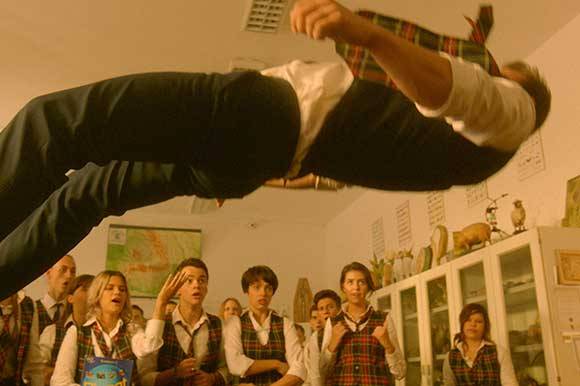The 35% cash rebate scheme launched in Romania in October 2018 was in full swing in 2019 with 62 international and domestic projects submitted, of which 48 were approved, five rejected, one withdrawn and the rest of them still in analysis at the beginning of 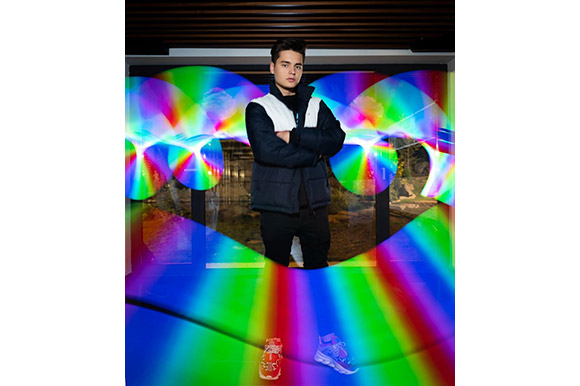 2020.
2020.
Romanian producer Ada Solomon was voted Deputy Chairwoman of the European Film Academy’s Board on the occasion of the European Film Awards meeting in Berlin in December 2019.
In July, at the first meeting of European Commissions’ Open Method of Coordination (OMC) Group on coproductions in the audiovisual sector, Romanian consultant Alex Trăilă was voted Vice Chair.
Bogdan Mureșanu’s short film The Christmas Gift / Cadoul de Crăciun received the European Short Film Award at the European Film Awards 2019, while Anca Damian’s film Marona’s Fantastic Tale was nominated in the European Animated Film category.
collective / colectiv by German-Romanian filmmaker Alexander Nanau was the first Romanian long documentary selected for Venice. The film screened in the Official Selection – Out of Competition at the Venice International Film Festival of the Biennale di Venezia 2019.
The Whistlers / La Gomera by Corneliu Porumboiu was selected as Romania’s candidate for the 92nd Academy of Motion Picture Arts and Sciences award in the best international feature film category. This Romanian/French/German coproduction had its world 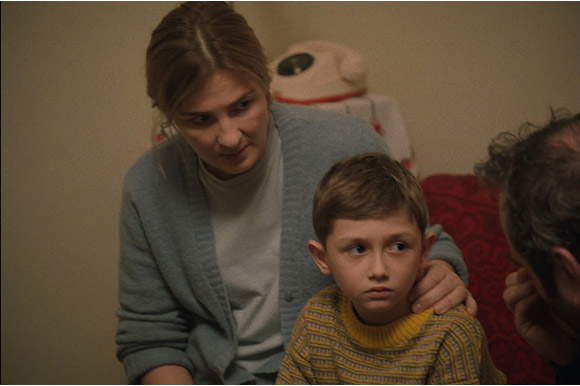 premiere in the Competition of the 2019 Cannes Film Festival and has been sold to approximately 30 territories including North America.
premiere in the Competition of the 2019 Cannes Film Festival and has been sold to approximately 30 territories including North America.
Monsters. / Monștri., the debut feature by Marius Olteanu, had its world premiere in Berlinale’s Forum and won the Tagesspiegel Readers' Jury Award.
From January to the end of June 2019, Romania held for the first time since entering the EU the Presidency of the Council of the EU. Under Romanian leadership, the Member States have agreed on a set of conclusions on improving the cross-border circulation of European audiovisual works, with an emphasis on coproductions (link)
In March, the Romanian Film Centre (CNC) together with Bucharest City Hall’s Expo Arte and the French Institute, hosted the 154th Eurimages Board of Management reunion.
The Federation of European Film and TV Directors (FERA) had its annual General Assembly hosted by Dacin Sara in Bucharest from 20 to 22 September 2019.
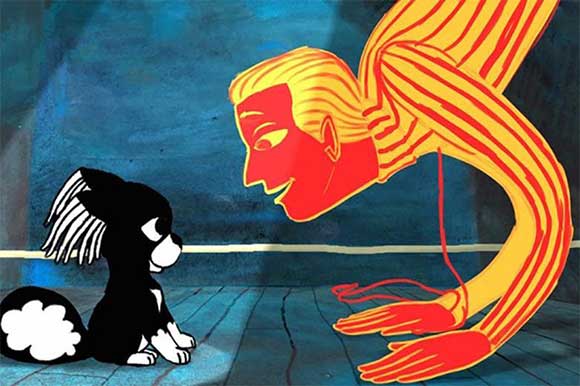 PRODUCTION
PRODUCTION
Most of the Romanian films shot or finished in 2019 are supported by the Romanian Film Centre. Here are some of them:
In March-April 2019 writer/director Andrei Gruzsniczki shot his fourth feature film, Emil (working title), a 100% Romanian coproduction between AVVA MMIX STUDIO and Hai-Hui Entertainment.
Director/producer and Castel Film Studios’s CEO Vlad Păunescu shot his sophomore feature The Ladder / Scara in September-October 2019. This account of Romania in the turbulent years 1989-1990 was produced by Castel Film.
Vali Hotea shot his sophomore feature, the 100% Romanian production Lebendsdorf aka I Hate Berlin in Romania and Germany in 2019. The film is a black comedy about indecision and the fear of taking responsibility, produced by HiFilm Productions in association with Romania’s nomada.solo and Visual Walkabout, and in coproduction with Romania’s Chainsaw Europe Studio, Abis Studio, Production XMG Media and Scharf Film Production.
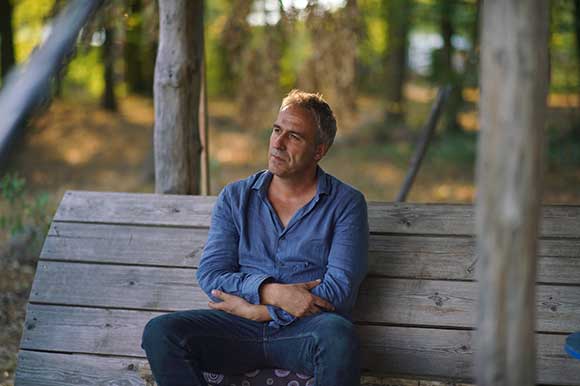 Icon production, the company behind Andrei Ujică’s The Autobiography of Nicolae Ceaușescu, produced Eugen Jebeleanu’s debut feature Inside / Înăuntru (working title), a drama exploring gay life in contemporary Romania.
Icon production, the company behind Andrei Ujică’s The Autobiography of Nicolae Ceaușescu, produced Eugen Jebeleanu’s debut feature Inside / Înăuntru (working title), a drama exploring gay life in contemporary Romania.
Dan Chișu’s new feature film 5 Minutes Too Late / 5 minute, inspired by homophobic reactions that occurred during a screening of an LGBT film in Romania, completed postproduction in 2019. The film is a Romanian coproduction between Domestic Film and DaKINO Production.
In 2019 Cristi Puiu finished the postproduction on his new feature film Malmkrog, which was eventually selected to open the new section Encounters of the 70th Berlin IFF in 2020. Malmkrog is produced by Mandragora (Romania), in coproduction with iadasarecasa (Romania), SENSE Production (Serbia), Cinnamon Films (Serbia), Film i Väst (Sweden), Doppelganger (Sweden), Bord Cadre Films (Switzerland), Produkcija 2006 Sarajevo (Bosnia and Herzegovina) and Sisters and Brothers Mitevski (Macedonia).
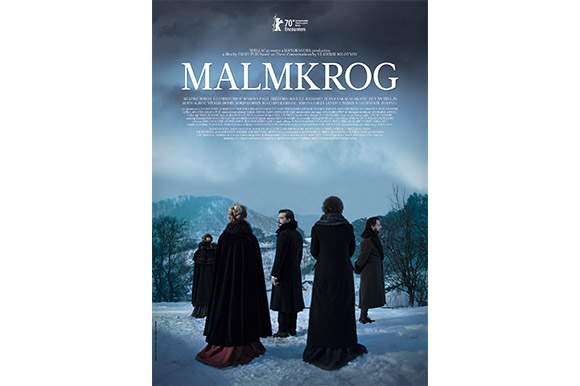 Cătălin Mitulescu also put the finishing touches on his fourth feature film Heidi, which had its world premiere in the main competition of the 25th Sarajevo Film Festival. The film was produced by Strada Film.
Cătălin Mitulescu also put the finishing touches on his fourth feature film Heidi, which had its world premiere in the main competition of the 25th Sarajevo Film Festival. The film was produced by Strada Film.
Among independent productions, Bogdan Theodor Olteanu’s sophomore feature Mia Misses Her Revenge, produced by Tangaj Production, was shot in July and September 2019.
Miami Bici directed by Matei Dima and Codin Maticiuc was also shot in 2019 as an independent production, produced by both of the directors. Matei Dima is a popular vlogger, whose debut feature 5GANG: Another Christmas broke the opening record for a domestic film since 1989 in just a few days since its release at the end of 2019.
Both films by Radu Jude selected for 2020 Berlinale’s Forum, The Exit of the Trains / Ieşirea trenurilor din gară and Uppercase Print / Tipografic majuscule, were produced in 2019. The Exit of the Trains is co-directed together with historian Adrian Cioflâncă and it was produced by Ada Solomon through microFILM together with nomada.solo.
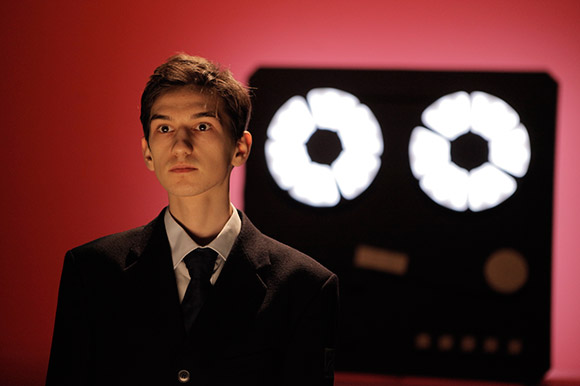 Uppercase Print is produced by microFILM in coproduction with the Romanian Television (TVR) and Hi Film Productions.
Uppercase Print is produced by microFILM in coproduction with the Romanian Television (TVR) and Hi Film Productions.
Hungarian/Romanian coproduction The Last Bus by Nándor Lőrincz and Bálint Nagy started shooting in July 2019. The film won the Postproduction Services Award offered by Romania’s Chainsaw Europe Studio in the 2018 edition of Transilvania Pitch Stop (the coproduction platform of the Transilvania IFF held in Cluj-Napoca, Romania), and it is produced by Hungary’s M &M Film and PartnersFilm in coproduction with Hungary’s St. Audio and Romania’s Chainsaw Europe.
Another Hungarian debut feature, Spiral by Cecília Felméri, wrapped shooting in February 2019. The film starring Golden Bear winner protagonists Alexandra Borbély and Bogdan Dumitrache is produced by Hungary’s Inforg M&M Film in coproduction with Hungary’s FocusFox Studio and Romania’s Hai-Hui Entertainment.
The first film produced by founder of the Superkombat Fight Championship Eduard Irimia through Superfilm, a company he established together with Moshe Diamant and Christopher Milburn in 2018, was shot in Romania in 2019. Back 2 Back is directed by 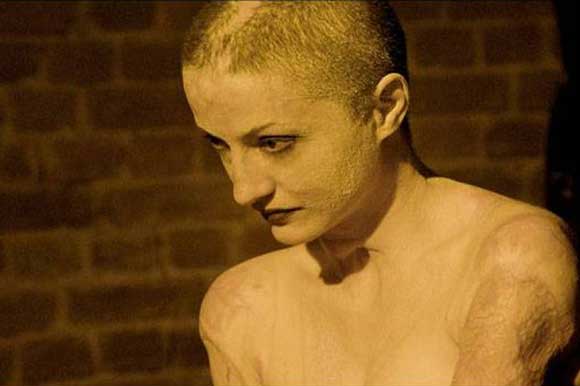 Kader Ayd and has an international cast and crew.
Kader Ayd and has an international cast and crew.
More than 20 international productions were approved for cash rebates in 2019. Here are some of the titles that were shot during the same year:
The anticipated sci-fi thriller Voyagers directed by Neil Burger and starring Colin Farrell and Lily-Rose Depp was shot in Romania with Icon Film SRL/Stillking Films servicing. The project benefited from almost 4 m EUR / 18,585,842 rebates approved in March 2019.
The US independent production Violence of Action directed by Tarik Saleh and starring Ben Foster, Chris Pine and Gillian Jacobs was shot in Romania starting November 2019. The film was serviced in Romania by Icon Film SRL/Stillking Films and received one of the biggest cash rebates approved in 2019, approximately 4.8 m EUR / 22,959,564 RON.
In 2019 Icon Films SRL also serviced the History channel docudrama Doris Kearns Goodwin Presents: Washington and season 2 of the TV series Impulse, created by Jeffrey Lieber and produced by Universal Cable Productions, both benefiting from the Romanian cash rebate scheme.
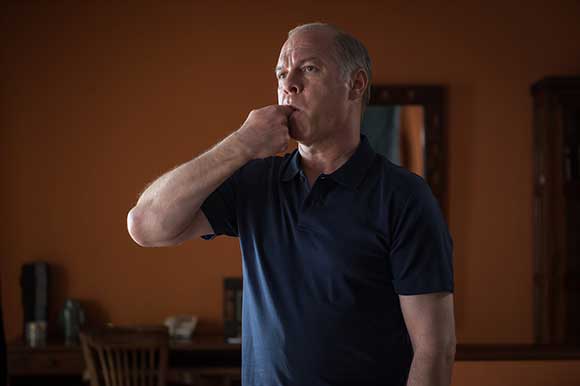 The biggest cash rebate approved in 2019 will go to Martin Campbell’s The Asset, starring Michael Keaton, Samuel L. Jackson and Maggie Q, which will be shot in Romania for 10 weeks starting 8 January 2020. The producers are working with Frame Film, which also serviced Riccardo Chemello’s Dampyr (coproduced by Eagle Pictures, Italy’s Sergio Bonelli Editore and Brandon Box), which was shot in Romania in 2019.
The biggest cash rebate approved in 2019 will go to Martin Campbell’s The Asset, starring Michael Keaton, Samuel L. Jackson and Maggie Q, which will be shot in Romania for 10 weeks starting 8 January 2020. The producers are working with Frame Film, which also serviced Riccardo Chemello’s Dampyr (coproduced by Eagle Pictures, Italy’s Sergio Bonelli Editore and Brandon Box), which was shot in Romania in 2019.
The Asset will receive approximately 6.25 m EUR / 29,875,383 RON and it is produced by Arthur Sarkissian Productions, Campbell Grobman Films and Seven Stars Entertainment.
The third film in the Netflix series A Christmas Prince titled A Christmas Prince: The Royal Baby, directed by John Schultz and starring Rose McIver and Ben Lamb, was also shot in Romania in 2019 and benefited from the cash rebate scheme. The Romanian partner of the project, Castel Film Studio, applied for 871,851 EUR / 4,097,704 RON rebate on 22 February 2019.
In 2018 Castel Film also serviced Netflix’s A Christmas Prince: The Royal Wedding by John Schultz, a sequel to the holiday film A Christmas Prince (2017) by Alex Zamm, which had also been shot in Romania.
Castel Film Studios also serviced the second season of the Italian miniseries La vita promessa by Ricky Tognazzi, which started shooting in Romania in July 2019. The miniseries is produced by RAI Italy and had five weeks of shooting.
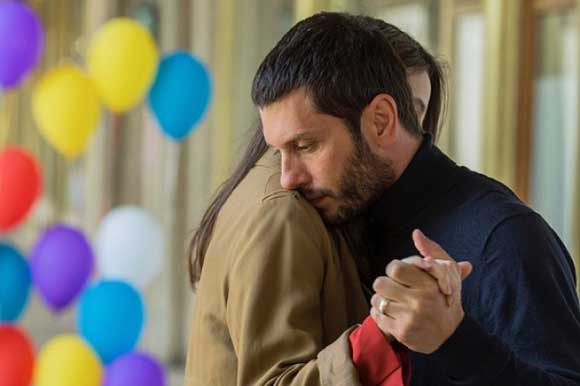 An episode of the third season of the Emmy award winning TV series Killing Eve was shot in Romania in October 2019. Alien Films Entertainment was again servicing and the production was approved for the cash rebate scheme. The British television spy series starring Sandra Oh and Jodie Comer is produced by Sid Gentle Films Ltd Productions for BBC America.
An episode of the third season of the Emmy award winning TV series Killing Eve was shot in Romania in October 2019. Alien Films Entertainment was again servicing and the production was approved for the cash rebate scheme. The British television spy series starring Sandra Oh and Jodie Comer is produced by Sid Gentle Films Ltd Productions for BBC America.
Alien Films Entertainment provided services for another two international productions in 2019. Aleksandr Mindadze’s feature film Parquet, produced by Reason & Films (UK) and Passenger Studio (Russia), also coproduced by Alien Films Entertainment, was shot from January through April 2019, while the TV series Alex Rider, produced by Eleventh Hour Films UK for Sony Television, was shot in the spring of 2019.
In 2019, the Romanian company Seven Film serviced Sweden’s Miso Film in the production of the crime series Box 21, based on the first bestseller from the series written by Anders Roslund and Börge Hellström.
The 6-episode series is directed by Mani Maserrat and produced by Miso Film’s Sandra Harms & Karl Fredrik Ulfung for Viaplay and NENT Group. The rebates approved are up to 780,000 EUR / 3,727,168 RON.
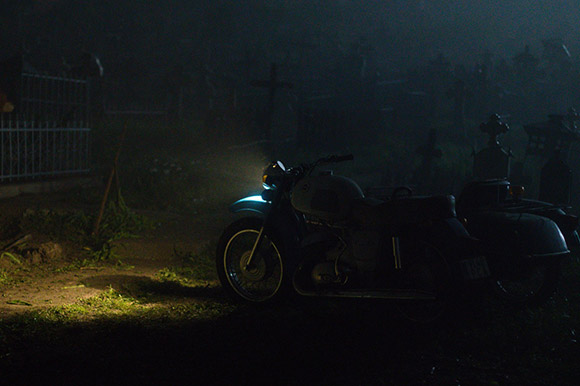 DISTRIBUTION
DISTRIBUTION
A total of 194 films were released in cinemas in 2019, of which 31 are domestic films, including minority coproductions.
The most important distributors in Romania, on the basis of first time released feature films, are: Vertical Entertainment, Ro-Image 2000, InterComFilm Distribution, Independența Film, Cine Europa, Odeon Cineplex, Forum Film Romania, Transilvania Film, Micro Film, Voodoo Films.
Other distributors are Bad Unicorn, Macondo, BML Music Entertainment and Clorofilm. Several production companies also have a distribution branch: Mandragora, Parada Film, Zazu Film, Oblique Media Film, Abis Studio.
Usually, big distributors do not release domestic titles unless they are expected to be successful in cinemas. In 2019 Ro Image 2000 released together with 42 KM FILM The Whistlers directed by Corneliu Porumboiu, while Vertical Entertainment distributed two of the most successful domestic films of the year, 5GANG: Another Christmas/5GANG: Un altfel de Crăciun directed by Matei Dima and produced by BRomania, and Do It Or Shut Up / Faci sau taci directed by Iura Luncașu and produced by Next Spot.
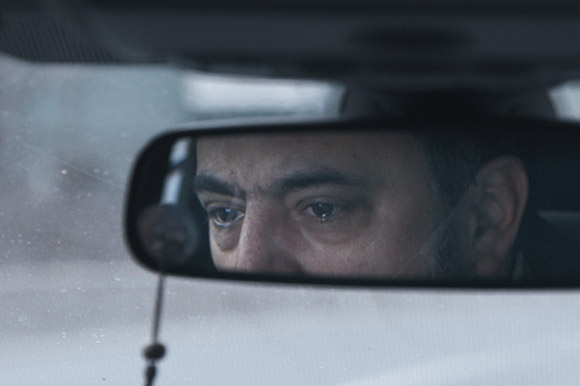 The Whistlers, produced by Romania’s 42 KM FILM in coproduction with France’s Les Films du Worso, Germany’s Komplizen Film and Arte Grand Accord, has been sold by MK2 Films to approximately 30 territories including North America.
The Whistlers, produced by Romania’s 42 KM FILM in coproduction with France’s Les Films du Worso, Germany’s Komplizen Film and Arte Grand Accord, has been sold by MK2 Films to approximately 30 territories including North America.
Alexander Nanau’s documentary collective / colectiv was sold by Cinephil in North America to Magnolia, in France to Sophie Dulac Distribution and in the UK to Dogwoof.
The film was produced by Romania’s Alexander Nanau Production in coproduction with Luxembourg’s Samsa Film and HBO Europe. collective was awarded Best Film in the International Documentary Film Competition of the 15th Zurich FF (26 September-6 October 2019). The Romanian premiere is set for February 2020.
The documentary Untamed Romania / România neîmblânzită, directed by Tom Barton-Humphreys and funded by Auchan Retail Romania and the environmental NGO The European Nature Trust, was sold to France Télévisions Group for broadcasting starting March 2019.
Ivana Mladenović’s sophomore feature Ivana the Terrible / Ivana cea Groaznică was acquired by the Toronto-based outlet Syndicado Film Sales. This Romanian/Serbian coproduction produced by Ada Solomon through Romania’s microFILM and Ivana 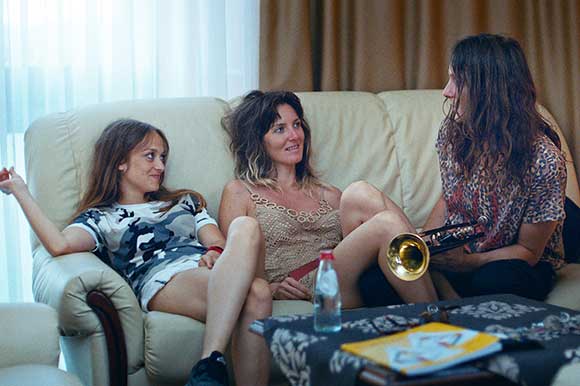 Mladenović through Serbia’s Dunav 84 had its world premiere in the Cineasti del presente section of the 72nd Locarno Film Festival (7-17 August 2019), where it won the Special Jury Prize Ciné+.
Mladenović through Serbia’s Dunav 84 had its world premiere in the Cineasti del presente section of the 72nd Locarno Film Festival (7-17 August 2019), where it won the Special Jury Prize Ciné+.
The Transilvania International Film Festival launched its new VOD platform TIFF Unlimited in June 2019. Between 60 and 80 films screened in the festival’s 17 previous editions are on offer. The organisers hope to cut deals with local and foreign distributors and festivals, as well as with the Romanian National Film Archive.
Vintage Sahia, the first web platform with films produced by the Communist documentary studio Alexandru Sahia between 1950 and 1990, was also launched in Romania in 2019 by One World Romania as a pilot-project that will be developed in the following years.
So far, this digital history platform has segments from approximately 70 films, whose copyright is held by the Romanian Film Centre (CNC). The access to films is free of charge and the platform has also an English version.
The Alexandru Sahia film studio, the only Romanian studio that produced documentaries before 1990, continued its activity after 1990 as SahiaFilm and it is currently insolvent. Its film archive was transferred to the Romanian Film Archive in 2006.
At its 14th edition held 4 to 13 October 2019 the Anim’est International Animation Film Festival launched a competition for VR animated films for the first time in Romania.
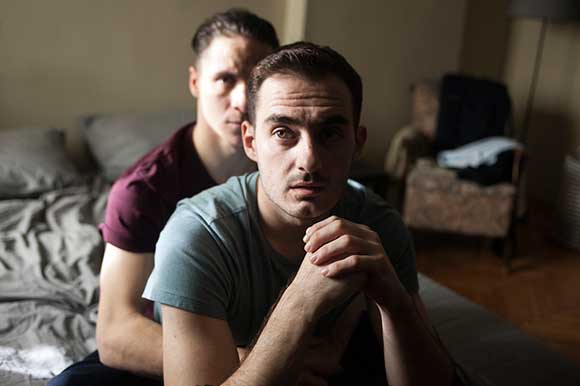 In 2019 The Oak / Balanța (1992) directed by Lucian Pintilie and produced by Romania’s Filmex Film in coproduction with the French company MK2, became the first Romanian film restored in the 4K digital format. The restoration was supported by BRD – Groupe Société Générale and Fundația9 through the Lucian Pintilie Cinema Fund launched in 2018. The original negative of the film was digitalised in 4K in the Hiventy laboratory (France) and the 4K restoration was performed by Avanpost Media, the largest high-end postproduction facility in Bucharest. Transilvania Film will bring the film for a theatrical re-release in February 2020.
In 2019 The Oak / Balanța (1992) directed by Lucian Pintilie and produced by Romania’s Filmex Film in coproduction with the French company MK2, became the first Romanian film restored in the 4K digital format. The restoration was supported by BRD – Groupe Société Générale and Fundația9 through the Lucian Pintilie Cinema Fund launched in 2018. The original negative of the film was digitalised in 4K in the Hiventy laboratory (France) and the 4K restoration was performed by Avanpost Media, the largest high-end postproduction facility in Bucharest. Transilvania Film will bring the film for a theatrical re-release in February 2020.
In 2019 the Romanian Film Archive finished the 4K restoration of Stere Gulea’s black and white drama Moromeții (1987) produced by Studioul Cinematografic București. The restoration was performed entirely at Cinelabs Romania and it was covered by the 3% of Romanian Film Fund destined for the preservation and restoration of Romanian films.
This is the third 4K restoration by the Romanian Film Archive, after the medium length documentary Union Celebrations / Sărbătorile Unirii (1929) by Tudor Posmantir and Liviu Ciulei’s prominent feature film Forest of the Hanged / Pădurea spânzuraților (1965, Studioul Cinematografic București), both restored in the Romanian Film Archive's own laboratory.
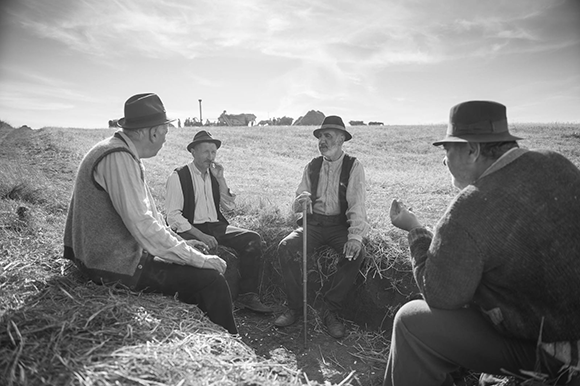 Stere Gulea’s Moromete Family: On the Edge of Time / Moromeții 2, a sequel to his film from 1987, was awarded best film during the 13th edition of the Gopo Gala, held at the National Theatre in Bucharest on 19 March 2019. The film produced by Libra Film was also awarded in nine other categories.
Stere Gulea’s Moromete Family: On the Edge of Time / Moromeții 2, a sequel to his film from 1987, was awarded best film during the 13th edition of the Gopo Gala, held at the National Theatre in Bucharest on 19 March 2019. The film produced by Libra Film was also awarded in nine other categories.
EXHIBITION AND BOX OFFICE
Cinema City, which is the biggest cinema operator in Romania, is currently running 26 multiplexes in 19 Romanian towns with 237 screens and 42,031 seats.
New Bucharest-based cinema operator CineGold SRL opened its first multiplex in Sibiu in November 2019. This is the first multiplex opened in this Transylvanian city, which was the European Capital of Culture in 2007. CineGold SRL plans to open another three multiplexes in Romania in the next three-five years.
Although admissions increased due to multiplexes, the tradition of single-screen cinemas is vanishing. Since 2008, RomâniaFilm, the former cinema network inherited from the communist era, has re-assigned more than 100 cinemas to local councils, but less than 10% are still screening films. Romania is currently the country with the fewest cinema theatres per capita in Europe. Seventy eight percent of Romanian towns don’t have any cinemas in use.
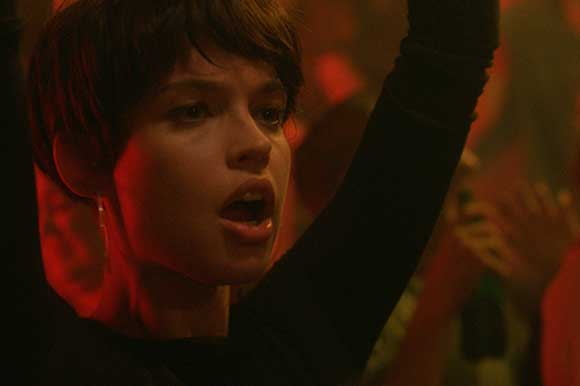
The teen comedy 5GANG: Another Christmas / 5GANG: Un altfel de Crăciun, the debut feature by vlogger Matei Dima, which was released on 27 December 2019, set a new opening record in Romania since 1989, with 146,784 admissions and 592,738 EUR / 2,831,396 RON gross.
5GANG: Another Christmas benefited from the cash rebates. Ten thousand tickets were pre-sold in the opening weekend. With only a few days in theatres in 2019, 5GANG: Another Christmas became the second most popular Romanian film in 2019 after Cristina Jacob’s teen comedy Oh, Ramona!, which is 11th in the general box office with 260,531 admissions and 1,066,468 EUR / 5,094,311 RON gross.
5GANG: Another Christmas is 13th in the general charts with 247,617 admissions and 979,382 EUR / 4,677,738 RON gross.
Oh, Ramona! held the previous opening record in Romania in the last 30 years with 111,881 admissions and 470,142 EUR / 2,209,669 RON gross, according to Romanian film portal Cinemagia.
Adrian Sârbu, former CEO at the Central European Media Enterprises, is behind Oh, Ramona!, which he produced through Zazu Film Production.
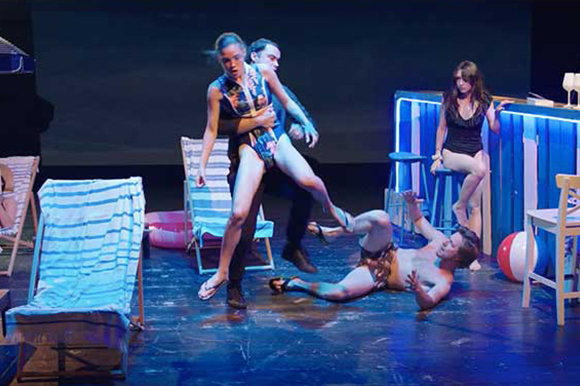 Another successful domestic film in cinemas in 2019 was Mary, Queen of Romania / Maria, Regina României, directed by Alexis Sweet Cahill and produced by Abis Studio, which is 25th in the general charts with 150,033 admissions and 593,530 EUR / 2,834,829 RON gross.
Another successful domestic film in cinemas in 2019 was Mary, Queen of Romania / Maria, Regina României, directed by Alexis Sweet Cahill and produced by Abis Studio, which is 25th in the general charts with 150,033 admissions and 593,530 EUR / 2,834,829 RON gross.
The general box office is topped by Avengers: Endgame with 3,015,303 EUR / 14,401,724 RON gross (its distributor Forum Film reports its admissions only to the Romanian Film Centre at the end of the year), followed by Frozen II with 2,618,366 EUR / 12,505,868 RON gross and Joker with 2,291,148 EUR / 10,943,010 RON gross.
Admissions to domestic films increased dramatically from 389,172 in 2018 to 806,472 in 2019, while domestic films gross increased from 1.42 m EUR / 6,712,375 RON in 2018 to 3.13 m EUR / 14,733,843 in 2019, according to official statistics issued by the Romanian Film Centre.
For the first time in years a Romanian film got to the overall top ten. The teen comedy Oh, Ramona!, directed by Cristina Jacob and produced by Adrian Sarbu through Zazu Film Production, is ranked 10th with 256,115 admissions and 1,067,312 EUR / 5,016,367 RON gross.
The teen comedy 5GANG: Another Christmas / 5GANG: Un altfel de Crăciun, the debut feature by vlogger Matei Dima, which was released on 27 December 2019, set a new opening record in Romania since 1989 and ranks 17th in the overall chart with 167,025 admissions and 672,867 EUR / 3,162,478 RON gross.
General admissions slightly decreased from 13,348,167 in 2018 to 13,129,899 in 2019, but the total gross increased from 55,953,522 EUR / 262,981,558 RON in 2018 to 56,464,483 EUR / 265,383,072 RON in 2019.
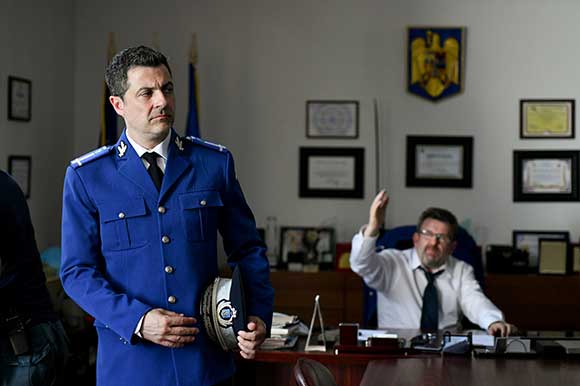 GRANTS AND NEW LEGISLATION
GRANTS AND NEW LEGISLATION
The annual state support for film industry was 11.7 m EUR in 2019, of which approximately 8.5 m EUR / 40 m RON were shared in two loans sessions in the selective scheme for development and production, while approximately 3.2 m EUR went to automatic supports grants.
On 27 September 2019 the Romanian Film Centre (CNC) distributed 4,176,495 EUR / 19,853,000 RON as production grants for feature, debut feature, short fiction, documentary, animated and thematic films in its first round of grants in 2019.
A total of 1,979,591 EUR / 9,410,000 RON went to the production of nine feature films, with the biggest grant of 420,742 EUR / 2 m RON allotted to Ioana Uricaru’s sophomore feature Reostat, with a script by Cristian Mungiu.
Surprisingly, new projects by accomplished directors including Radu Muntean, Adrian Sitaru, Florin Șerban and Constantin Popescu did not receive funding. Three debut features by Theodora Mihai, Ioana Mischie and Dubravka Turic together received 605,027 EUR / 2,876,000 RON, while ten short fiction films received 207,846 EUR / 988,000 RON.
The thematic section received 568,001 EUR / 2.7 m RON and focused on comedy, where Serbian director Slobodan Šijan’s new project The Great Tram Robbery / Budi Bog s nama received production support as a Romanian minority coproduction alongside projects by Cătălin Saizescu and Ștefan Pătrașcu.
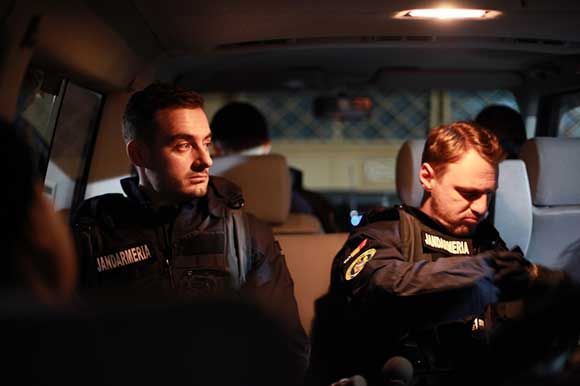 Seven long and short documentaries received 420,742 EUR / 2 m RON, while five long and short animated films split 395,287 EUR / 1, 879,000 RON.
Seven long and short documentaries received 420,742 EUR / 2 m RON, while five long and short animated films split 395,287 EUR / 1, 879,000 RON.
The Romanian Film Centre announced script development grants for feature films and documentaries in the same session.
The second session for 2019 was announced on 18 December 2019 with deadline on 30 January 2020 and its results will be known in late spring 2020.
In June 2018 Romania approved a state aid scheme offering a 35% cash rebate on qualified expenditure for international productions shooting in Romania with a minimum local spend of 20% of the total budget. There is a total cap of 50 m EUR per year to fund the scheme. The multiannual scheme approved on 13 June 2018 runs until the end of 2020.
In addition to the 35% cash rebate on qualified expenditure, productions explicitly promoting Romania can also apply for an extra 10%, raising the rebate to 45%.
A total of 62 international and domestic projects were submitted in 2019, of which 48 were approved, five rejected, one withdrawn and the rest of them was still in analysis at the beginning of 2020.
The cash rebate was implemented by the National Commission for Prognosis, but starting from 2020 it is expected to be taken over by the Ministry of Economy.
The Romanian Cultural Institute has an acting President, former VP Mirel Taloș, after Liliana Țuroiu’s departure to Brussels office. In September Alex Trăilă was appointed by the Parliament as member of Romanian Cultural Institute‘s Board of Management.
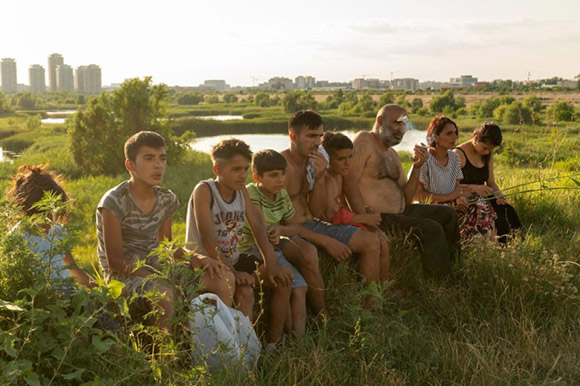 In November 2019 Bogdan Gheorghiu was named the new Minister of Culture in Romania, as a transitional cabinet led by the National Liberal Party leader Ludovic Orban was approved by the Parliament on 4 November 2019.
In November 2019 Bogdan Gheorghiu was named the new Minister of Culture in Romania, as a transitional cabinet led by the National Liberal Party leader Ludovic Orban was approved by the Parliament on 4 November 2019.
He is the fourth Minister of Culture in Romania in the past three years and he replaced Valer-Daniel Breaz from the Social Democrat Party (PSD), who had been appointed in November 2018.
In 2019 the Industry section at the 18th Transilvania IFF showed off the dynamic and solution-driven initiatives of the Romanian film industry with the launches of new and innovative programmes. One of those is the Film + training programme, which announced the expansion of its activities to encompass micro-budget debut films from Romania, Moldova, Bulgaria and Serbia.
The project received a three-year promise of support from Creative Europe MEDIA, with 48,000 EUR per year, and 50,000 EUR coming from the Romanian National Cultural Fund Administration to be used over a two-year period.
Radu Ciorniciuc’s documentary Home / Acasă and Ruxandra Ghițescu’s debut feature Otto the Barbarian / Otto barbarul are the winners of the Works in Progress section at the 10th edition of the festival Les Films de Cannes à Bucarest, which wrapped on 27 October 2019.
Asociația Cinemascop organised, with the support of HBO Europe, a script contest Write a Screenplay for Sebastian Stan. Experienced or newcoming Romanian language scriptwriters were invited to send an outline for either a feature film or a 6-episode TV miniseries. The first edition of the contest was organised on the occasion of the 3rd edition of the American Independent Film Festival (12-18 April 2019). HBO Europe and Asociația Cinemascop will support the selected projects until the script stage. The Romanian-born American actor Sebastian Stan was a guest of the 2018 edition of the American Independent Film Festival.
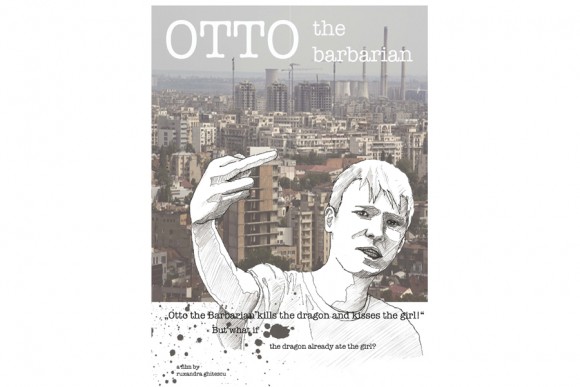 At the initiative of director and producer Anca Damian, producers Ada Solomon and Anamaria Antoci joined the Romanian Association of Women in Cinema (ARFC) as board members and already kicked off some support programmes for emerging women Romanian directors.
At the initiative of director and producer Anca Damian, producers Ada Solomon and Anamaria Antoci joined the Romanian Association of Women in Cinema (ARFC) as board members and already kicked off some support programmes for emerging women Romanian directors.
TV
The six-episode original HBO Europe series Tuff Money / Bani negri (pentru zile albe), written and directed by Daniel Sandu, started shooting in Romania in August 2019, produced by Cristian Mungiu’s Mobra Films. The simultaneous premiere on HBO Europe is set for 2020.
The 3rd season of the Romanian TV series Shadows / Umbre started airing on HBO Romania in November 2019. The series is written and directed by Claudiu Mirică. The first two seasons of Shadows aired on TNT in Romania in November 2019.
Adrian Sârbu and journalist Marius Tucă received a satellite license from the National Audiovisual Council in Romania for the generalist channel Smart TV/Smart TV HD Bucureşti in June 2019. The channel will focus on journalism and urban culture.
In 2019 cable and broadband operator Liberty Global wrapped up the sale of operations in Romania to Vodafone.
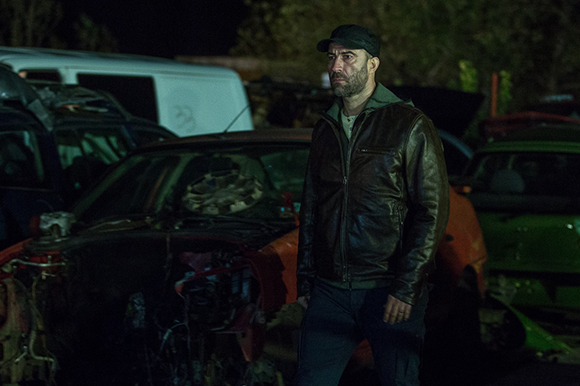 The most popular domestic TV series in 2019 was again Las Fierbinți, whose 15th season launched on Pro TV at the beginning of the year with over 2.3 m viewers. The 16th season of the series launched in September 2019. Five seasons of the series are at the top of the national chart.
The most popular domestic TV series in 2019 was again Las Fierbinți, whose 15th season launched on Pro TV at the beginning of the year with over 2.3 m viewers. The 16th season of the series launched in September 2019. Five seasons of the series are at the top of the national chart.
In April 2019, the Antena 1 channel launched the series Free as a Bird / Liber ca pasărea cerului directed by Răzvan Săvescu, and in September 2019 it launched the TV series Mangalița directed by George Dogaru, as well as the family drama The Sacrifice / Sacrificiul directed by Ruxandra Ion and also produced by her through Dream Film Production. The Sacrifice was approved for cash rebates.
In 2019 Pro TV launched the first two seasons of the TV series Vlad directed by Jesus del Cerro. The second season was approved for cash rebates. A third season was announced for 2020.
The series Moldovenii, made by the comic group 3 Chestii, which has over 1 m subscribers on YouTube, launched on Kanal D channel in November 2019.
Another popular vlogger, Matei Dima (BRomania) produced the teen series L-a seral, directed by Vali Dobrogeanu and launched on YouTube in August 2019. Its first episode had almost 1.7 m viewers through January 2020. Its 10th (and last) episode, launched on 19 December 2019, had over 700,000 viewers through January 2020.
CONTACTS:
ROMANIAN FILM CENTRE
4-6, Dem. I. Dobrescu street, sector 1, Bucharest
Phone: +40 213 104 301
Fax: + 40 213 104 300
www.cnc.gov.ro
This email address is being protected from spambots. You need JavaScript enabled to view it.
THE MINISTRY OF CULTURE
22, Bulevardul Unirii, sector 3, Bucharest
Press office: +40 212 243 947
www.cultura.ro
This email address is being protected from spambots. You need JavaScript enabled to view it.
FILMMAKERS’S UNION (UCIN)
28-30 Mendeleev, sector 1, Bucharest
Phone: +40 213 168 0 83, +40 213 168 0 84
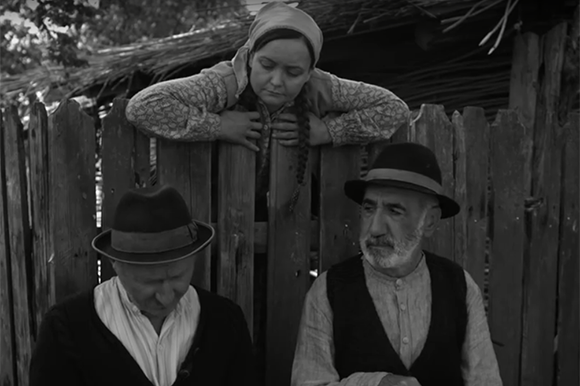 Fax: + 40 213 111 246
Fax: + 40 213 111 246
www.ucin.ro
This email address is being protected from spambots. You need JavaScript enabled to view it.
ROMANIAN FILM PROMOTION
52 Popa Soare street, sector 2, Bucharest
Phone: + 40 213 266 480
Fax: + 40 213 260 268
www.romfilmpromotion.ro
This email address is being protected from spambots. You need JavaScript enabled to view it.
ROMANIAN CULTURAL INSTITUTE
38 Aleea Alexandru
Sector 1, 011824
Bucharest, Romania
Phone: (+4) 031 71 00 627, (+4) 031 71 00 606
Fax: (+4) 031 71 00 607
www.icr.ro
This email address is being protected from spambots. You need JavaScript enabled to view it.
CREATIVE EUROPE MEDIADESK ROMANIA
57 Barbu Delavrancea street, et. 1, sector 1, Bucharest
Phone / Fax: +40 213 166 060, +40 213 166 061
www.media-romania.eu
This email address is being protected from spambots. You need JavaScript enabled to view it.
Report by Iulia Blaga (2020)
Sources: Romanian Film Centre - CNC, Cinemagia, Pagina de media
MARKET ANALYSIS 2018
 The most important development in the Romanian film industry in 2018 is the cash rebate scheme launched by the National Commission for Prognosis on 8 October 2018. A total of 41 international and national projects applied for rebates until the end of 2018.
The most important development in the Romanian film industry in 2018 is the cash rebate scheme launched by the National Commission for Prognosis on 8 October 2018. A total of 41 international and national projects applied for rebates until the end of 2018.
As the Film Fund increased, more funding was available for the call organised by the Romanian Film Centre (CNC). In 2018 the Romanian Film Centre prepared a new film draft aimed at boosting support and visibility for the film industry.
The CNC allotted more money for minority coproductions, despite the fact that a special category for minority coproductions is expected to be established by the new Film Law.
Following the trend, which has already lasted for almost 18 years now, Romanian films continued receiving awards at international festivals. The most important recognitions for Romanian cinema in 2018 are the Golden Bear and the GWFF Best First Feature Award at the Berlinale for Adina Pintilie’s Touch Me Not. In July 2018 "I Do Not Care If We Go Down in History as Barbarians" / "Îmi este indiferent dacă în istorie vom intra ca barbari" by Radu Jude won the Crystal Globe for best film at the 53rd Karlovy Vary IFF and it became Romania’s bid for the Oscars.
Ioana Uricaru was awarded best director for Lemonade in August 2018 at the Sarajevo Film Festival, while Love 1: Dog / Dragoste 1: Câine by Florin Șerban, produced by Fantascope and also supported by the Romanian Film Centre, received two awards from the festival’s partners. Ioana Uricaru was also nominated for the 2019 Independent Spirit Awards in the Someone to Watch category.
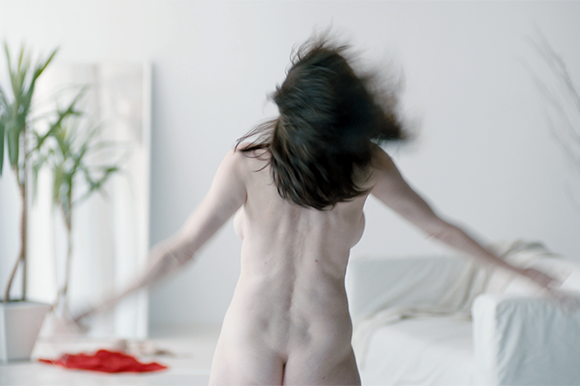 In October 2018 Anca Damian was awarded best director at the 34th Warsaw IFF for Moon Hotel Kabul.
In October 2018 Anca Damian was awarded best director at the 34th Warsaw IFF for Moon Hotel Kabul.
The domestic film of the year is Moromete Family: On the Edge of Time / Moromeții 2 by Stere Gulea, which became the most successful Romanian film in the last 16 years. The film’s ranked 34th in the general box office with 184,951 admissions and 529,339 EUR / 2,475,122 RON gross.
Sadly, Lucian Pintilie, the most important Romanian film director and the godfather of the New Romanian Cinema, died at age 84 on 16 May 2018.
PRODUCTION
Most of the films produced in 2018 were supported by the Romanian Film Centre.
Cristi Puiu shot his first feature film in French Malmkrog aka Manor House / La conac in 2018. The film was produced by Mandragora in coproduction with Serbia’s Sense Production, Switzerland’s Bord Cadre Films and Romania’s iadasarecasa and Studioul de Creatie Cinematografica Bucuresti. It was supported by the Romanian Film Centre, Film Center Serbia, Sovereign Films (UK) and Cinema City Romania.
Corneliu Porumboiu shot Gomera in Romania and Spain in February-April 2018. This Romanian/French/German coproduction stars Vlad Ivanov and has already been acquired by MK2 Films. The first film that Porumboiu shot outside Romania is a coproduction between 42 KM FILM (Romania), Les Films du Worso (France), Komplizen Film (Germany) and Arte Grand Accord.
Cătălin Mitulescu, who won the Palm d’or for his short film Traffic / Trafic in 2004, shot his fourth feature film Heidi in 2018. He is producing it through Strada Film.
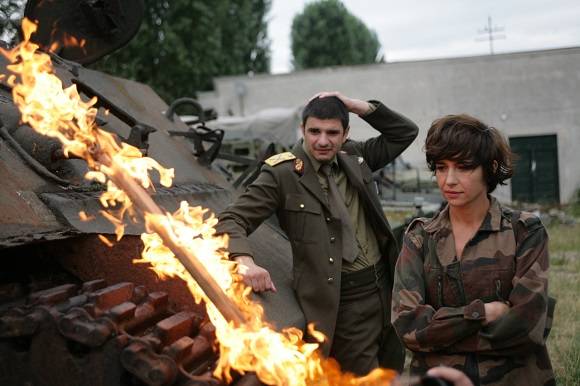 Tudor Giurgiu shot his first feature film abroad, in Spain. The love story Parking is a Romanian/Spanish/Czech coproduction between his company Libra Film, Spain’s Tito Clint Movies and Evolution Films from the Czech Republic.
Tudor Giurgiu shot his first feature film abroad, in Spain. The love story Parking is a Romanian/Spanish/Czech coproduction between his company Libra Film, Spain’s Tito Clint Movies and Evolution Films from the Czech Republic.
In October-November 2018, writer/director Marian Crișan shot his fourth feature film Berliner with Moldavian DoP Oleg Mutu, who also shot Cristian Mungiu’s 4 Months, 3 Weeks and 2 Days and Beyond the Hills (Mobra Films). Crișan is producing though his company Rova Film.
In 2018 Iura Luncaşu shot Do It or Shut Up / Faci sau taci, a comedy he is also producing through Next Spot. His previous comedy Ghinionistul was the Romanian film with the best box office in 2017 (223,840 EUR / 1,007,284 RON gross).
The most prolific Romanian independent director Dan Chișu shot a new feature film in 2018, The Gendarme / Jandarmul produced by Domestic Film in coproduction with Dakino Production.
In August 2018 writer/director Ioana Mischie (Fulbright Alumna, Berlinale Talents Alumna) started production on Government of Children, a pioneering transmedia world reuniting a 3D state of the art feature film and an expanded webseries. The project is independently produced by Storyscapes, a Romanian association focusing on transmedia and groundbreaking concepts, and Studioset, a multi-awarded creative studio.
In September 2018 Andrei Cohn shot his sophomore feature Arrest / Arest aka 1983, a drama set in the communist era and produced by Mandragora in coproduction with Multi Media Est and iadasarecasa.
Mandragora also produced Liviu Săndulescu’s debut feature Cărturan, coproduced by Sweden’s Film I Väst and Doppelganger AB and Romania’s iadasarecasa.
In December 2018 Tudor Cristian Jurgiu wrapped shooting on his second feature film And They May Be Still Alive Today / Și poate mai trăiesc și azi, a coproduction between Romania’s Libra Film Productions and Greece’s Graal S.A.
Two debut features shot in 2018 are Monsters / Monștri by Marius Olteanu, a contemporary drama produced by Parada Film in coproduction with Wearebasca, and Legacy / Urma directed by Dorian Boguță and produced by Hai-Hui Entertainment in coproduction with Mandragora and Actoriedefilm.ro. Both Monsters and Legacy are 100% Romanian productions.
The long documentary Our Special Birthday / Născuți în aprilie by Adrian Pârvu, a Romanian/Ukrainian coproduction between HiFilm Productions and Tato Film, was shot in 2018.
Ivana Mladenovic shot her sophomore feature Summer Night, Ten Thirty / Noapte de Vară. 10 jumătate, a Romanian/Serbian coproduction between Micro Film and Dunav ’84. The film entered postproduction at the beginning of January 2019 with a few days of shooting left for 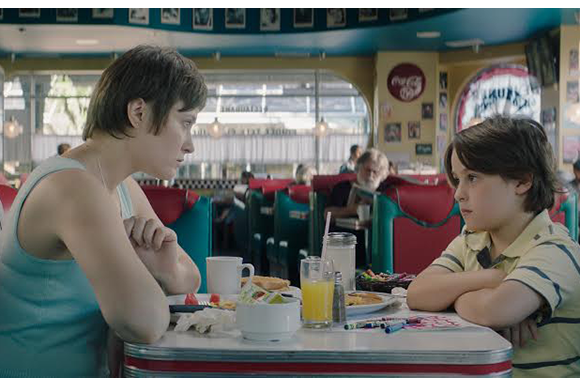 2019.
2019.
The documentary Whose Dog? / Al cui câine sunt?, directed by Robert Lakatos and produced by Micro Film, started shooting in 2018, but filming will continue in 2019.
We Are Basca produced two long documentaries, which were shot in 2018: Emigrant Blues: A Road Movie in 2 and 1/2 Chapters by Claudiu Mitcu and Mihai Mincan, coproduced with DeFilm, and The Anniversary by Claudiu Mitcu.
Among the feature films completed in 2018 are Anca Damian’s Moon Hotel Kabul, a Romanian/French coproduction between Aparte Film and Cinema Defacto (which brought Damian the best director prize at the 2018 Warsaw IFF), and Ana Lungu’s independent feature film One and a Half Prince / Un prinț și jumătate, produced by Mandragora.
The Romanian minority coproduction Spiral, directed by Cecília Felméri and starring Romanian actor Bogdan Dumitrache, Slovak-Hungarian actress Alexandra Borbély and Hungarian actress Diána Magdolna Kiss, started shooting in May 2018. The film is produced by Hungary’s Inforg - M&M Film in coproduction with Romania’s Hai-Hui Entertainment.
Another Hungarian/Romanian coproduction shot in 2018 is Eden, directed by Agnes Kocsis and produced by Hungary’s Mythberg Films in coproduction with Romania’s Libra Film and Belgium’s WFE Production.
SAF, a coproduction between Turkey’s Terminal Film, Germany’s 2Pilots and Romania’s 4 Proof Film was shot in Istanbul in December 2018-January 2019. The director Ali Vatansever used the Romanian DoP Tudor Panduru and the Romanian actress Mihaela Trofimov in a small part.
Another Romanian minority coproduction shot in 2018 is Son / Sin by Ines Tanović, which is produced by Dokument from Bosnia and Herzegovina in coproduction with Croatia’s Spiritus Movens, Slovenia’s Monoo, Macedonia’s Cut-up, and Romania’s Luna Film.
Most of the postproduction on Donbass by Sergei Loznitsa, which was awarded best director in Cannes’s Un Certain Regard 2018, took place in Bucharest at Digital Cube. The film is a German/ French/Ukrainian/Dutch/Romanian coproduction with Digital Cube coproducing from Romania. Moldavian Oleg Mutu is lensing and Moldavian-born Bucharest-located actor Valeriu Andriuță is in the cast.
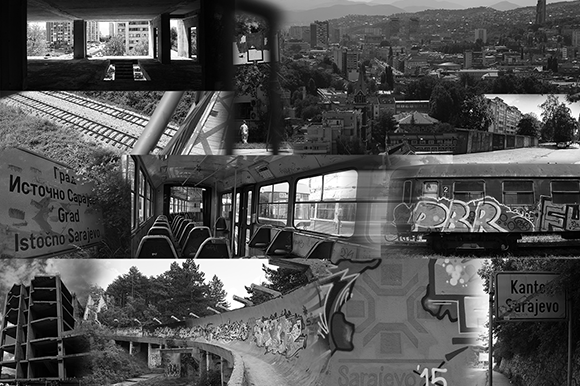 Anthony C. Ferrante started shooting his new horror The Last Sharknado in Romania on 19 February 2018. The sequel to Ferrante’s TV movie hit Sharknado stars the same actors as the 2013 film: Ian Zering, Tara Reid, Casandra Scerbo and Vivica Fox. It was serviced by Romania’s Castel Film Studios.
Anthony C. Ferrante started shooting his new horror The Last Sharknado in Romania on 19 February 2018. The sequel to Ferrante’s TV movie hit Sharknado stars the same actors as the 2013 film: Ian Zering, Tara Reid, Casandra Scerbo and Vivica Fox. It was serviced by Romania’s Castel Film Studios.
Also serviced by Castel Film in 2018 are Netflix’s A Christmas Prince: The Royal Wedding, a romantic comedy by John Schultz and a sequel to the holiday film A Christmas Prince, Hallmark’ special Thanksgiving movie called Christmas Princess on Ice, and also Backdraft 2 by Gonzalo López-Gallego, The Princess Switch by Mike Rohl, The Cleansing Hour by Damien LeVeck, Dragonheart 5 (a sequel to Universal’s Dragonheart 4, which was also shot in Romania) and The Hard Way by Keoni Waxman.
In 2018 the Romanian company Alien Film serviced the French feature film The Silver Forest / La fôret d’argent, directed by Emmanuel Bourdieu and produced by Italique Productions for ARTE. The film was shot on location in Bucharest and in villages around Ploiești.
DISTRIBUTION
A total of 193 films were released in cinemas in 2018, of which 23 are domestic films, according to Cinemagia.ro. In 2017 a total of 187 films were theatrically released, including 19 domestic films.
The most important distributors in Romania, on the basis of first time released feature films are: Vertical Entertainment, Ro-Image 2000, InterComFilm Distribution, Independența Film, Cine Europa, Odeon Cineplex, Forum Film Romania, Transilvania Film, Micro Film, Voodoo Films.
Other distributors are Bad Unicorn, Macondo, BML Music Entertainment and Clorofilm. Several production companies also have a distribution branch: Mandragora, Parada Film, Zazu Film, Oblique Media Film, Paradox.
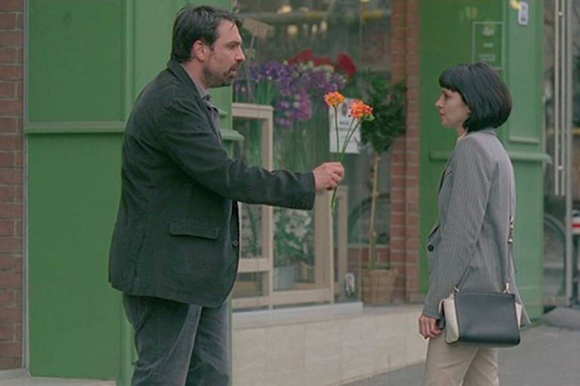 Usually big distributors do not release domestic titles, but there are some exceptions. Ro Image 2000 distributed in 2018 the romantic comedy The Story of a Summer Lover / Povestea unui pierde-vară, directed by Paul Negoescu and produced by Papillon Film. The film had 13,861 admissions.
Usually big distributors do not release domestic titles, but there are some exceptions. Ro Image 2000 distributed in 2018 the romantic comedy The Story of a Summer Lover / Povestea unui pierde-vară, directed by Paul Negoescu and produced by Papillon Film. The film had 13,861 admissions.
The creative agency ROLLERCOASTER PR launched as a distributor on the Romanian market on 24 August 2018 with the theatrical release of the domestic documentary Licu, a Romanian Story directed by Ana Dumitrescu and produced by Jules et Films.
In 2018 a caravan travelled through Romania and the Republic of Moldova celebrating 100 years of Romanian cinema by screening 100 movies in 100 cities in one year. The project put up by the ARTIS Association in the Romanian city of Iași and the MIA Public Association in Chișinău, the capital of the Republic of Moldova, was launched in Iași with the screening of Eastern Business / Afacerea Est directed by Igor Cobileanski, a Romanian/Lithuanian coproduction between Alien Film and Just a Moment.
Adina Pintilie’s debut feature Touch Me Not was sold by Doc & Film in more than 35 territories, including North America, where Kino Lorber acquired the rights. “The extensive international exposure, with more than 40 selections for prestigious festivals, together with a worldwide theatrical release, which started in October 2018, in more than 35 countries, offered a solid platform to fully develop this active dialogue with the international audiences”, Romanian producer Bianca Oana told FNE.
Touch Me Not / Nu mă atinge-mă was produced by Romania’s Manekino Film in coproduction with RohFilm Productions (Germany), PINK from the Czech Republic, Bulgaria’s Agitprop Ltd and France’s Les Films de l'Étranger. The film was awarded the Golden Bear and the GWFF Best First Feature Award at the 2018 Berlin IFF.
"Radu Jude’s I Do Not Care If We Go Down in History as Barbarians" / "Îmi este indiferent dacă în istorie vom intra ca barbari" was sold by Beta Cinema to Poland, Hungary and ex-Yugoslavia. The film won the Crystal Globe for best film at the 53rd Karlovy Vary IFF and it was Romania’s bid for the Oscars. Micro Film released it in Romania on 28 September 2018. Hi Film Productions produced it in coproduction with the Czech company endorfilm, France’s Les Films d’Ici, Bulgaria’s Klas Film and Germany’s Komplizen Film.
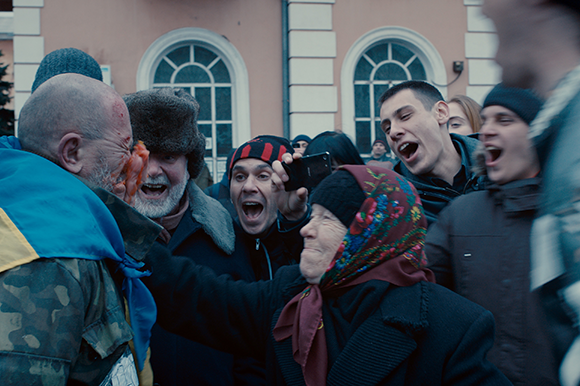 Ioana Uricaru’s debut feature Lemonade, produced by Cristian Mungiu through Mobra films, was sold by Pluto Film to several territories after premiering in 2018 Berlin Film Festival’s Panorama section. The film was sold to France’s ASC Distribution at Berlinale’s European Film Market and afterwards to China, Israel, ex-Yugoslavia and Greece, and also in the MENA region (Middle East and North Africa), Mexico, Italy, South Cpreea and Spain. Lemonade, a Romanian/German/Canadian/Swedish coproduction between Mobra films, 42 Film, Peripheria and Filmgate Films, was released in Romania by Mungiu’s distribution outlet Voodoo Films on 26 October 2018.
Ioana Uricaru’s debut feature Lemonade, produced by Cristian Mungiu through Mobra films, was sold by Pluto Film to several territories after premiering in 2018 Berlin Film Festival’s Panorama section. The film was sold to France’s ASC Distribution at Berlinale’s European Film Market and afterwards to China, Israel, ex-Yugoslavia and Greece, and also in the MENA region (Middle East and North Africa), Mexico, Italy, South Cpreea and Spain. Lemonade, a Romanian/German/Canadian/Swedish coproduction between Mobra films, 42 Film, Peripheria and Filmgate Films, was released in Romania by Mungiu’s distribution outlet Voodoo Films on 26 October 2018.
Gabi Virginia Şarga and Cătălin Rotaru’s debut feature Thou Shalt Not Kill / Să nu ucizi was acquired by Paris-based Indie Sales ahead of its world premiere in the 1-2 Competition of the 34th Warsaw FF. Thou Shalt Not Kill was produced by Axis Media Production in coproduction with Green Cat Film. Idea Film Distribution will release the film domestically in the first semester of 2019.
For the first time Les Films de Cannes à Bucarest, the festival initiated by Cristian Mungiu with the support of the General Delegate of the Cannes Film Festival, Thierry Frémaux, whose 9th edition took place in Bucharest and also in seven Romanian towns from 19 October to 11 November 2018, gave two distribution awards of 2,500 EUR to the future Romanian distributor of an international film screened in Cannes and also of 5,000 EUR to a Romanian film that already has a domestic distributor.
Consequently, the Aide à la Distribution Award went to 3 Faces (Iran) by Jafar Panahi, while the new creative agency ROLLERCOASTER PR received support for the distribution of The Distance between Me and Me, a documentary directed by Mona Nicoară and Dana Bunescu, and produced by Hi Film Productions and Sat Mic in coproduction with the Romanian Public Television (TVR).
Bucharest Film Studios, the former MediaPro Studios, filed for insolvency in 2018. Media Pro Studios was sold by Central European Media Enterprises (CME) to a group of American and Romanian investors including Donald Kushner and Bobby Păunescu in 2015. Bucharest Film Studios’ request for insolvency came after a creditor asked for the company’s insolvency at the end of 2017.
Equally Red and Blue / Albastru și roșu, în proporții egale by Georgiana Moldoveanu (UNATC I.L. Caragiale) was selected for the Cinéfondation section of the Cannes Film Festival 2018.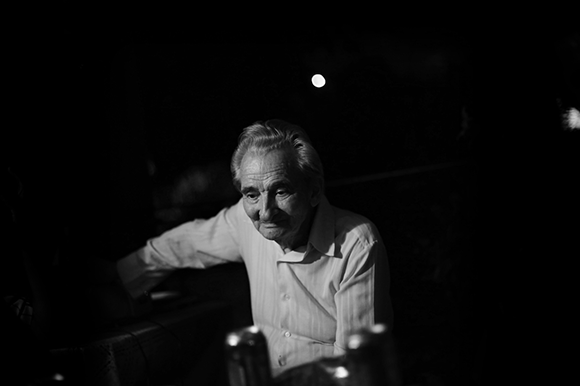
The most awarded Romanian short film in 2018 was The Christmas Gift / Cadoul de Crăciun by Bogdan Mureșanu, winner of best film at Cottbus and Izmir, Jury Prize at Montpellier and First Prize at Alcine.
In March 2018 Daniel Sandu’s debut feature One Step behind the Seraphim won eight awards at the 12th Gopo awards, including best film, best director and best debut feature. One Step behind the Seraphim / Un pas în urma serafimilor is one of the few Romanian feature films released on the Vimeo platform. The film was released on Vimeo at the beginning of 2018, only for the Romanian audience.
In December 2018 Moromete Family: On the Edge of Time / Moromeții 2 by Stere Gulea, the most successful domestic film of the year, was released on Vimeo for Romanians living abroad.
EXHIBITION AND BOX OFFICE
Despite the fact that admissions increased to 13.8 m in 2017 due to multiplexes, the tradition of one-screen cinemas is vanishing. Since 2008, RomâniaFilm, the former cinema network inherited from the communist era, has re-assigned more than 100 cinemas to local councils, but less than 10% are still screening films. Romania is currently the country with the fewest cinema theaters per population in Europe. Seventy eight percent of Romanian towns don’t have any cinemas in use. Moreover, RomaniaFilm announced in 2018 that it will close 10 cinemas, leaving only three open, in Cluj-Napoca, Sibiu and Piatra Neamț.
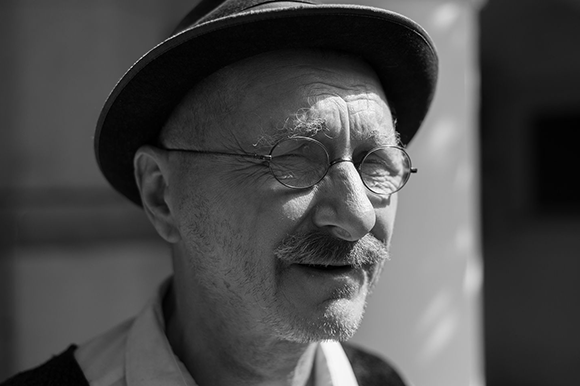 During a debate around the cinemas organised at the Festival Les Films de Cannes à Bucarest in October 2018, the Romanian Film Centre (CNC) announced its intention to find a legal framework for granting 100,000 EUR for the technological upgrade of cinemas.
During a debate around the cinemas organised at the Festival Les Films de Cannes à Bucarest in October 2018, the Romanian Film Centre (CNC) announced its intention to find a legal framework for granting 100,000 EUR for the technological upgrade of cinemas.
In March 2018 Cinema City, the biggest cinema operator in Romania, opened in Cluj-Napoca its fifth 4DX cinema in Romania with an investment of approximately 850,000 EUR. Cinema City is currently running 26 multiplexes in 19 Romanian towns with 237 screens and 42,031 seats.
Due to the rising number of multiplexes, the number of screens increased from 386 in 2017 to 404 in 2018, most of them digital.
In December 2018 the Austrian company Cineplexx, one of the most important operators in the CEE region, announced its intention to enter the Romanian market and to open eight cinemas with more than 50 screens with an investment of 25 m EUR until 2021. The company is also prospecting a refurbishment project. The first two cinemas will open in Bucharest and Satu Mare in the first quarter of 2019 and another two cinemas will open by the end of 2019.
A total of 23 domestic films were released in Romania in 2018, of which 10 were debuts and six long documentaries. The 19 domestic films released in 2017 included six debut features and three long documentaries.
The most successful domestic film in 2018 was Stere Gulea’s Moromete Family: On the Edge of Time / Moromeții 2 with 184,951 admissions and 529,339 EUR / 2,475,122 RON gross in eight weeks. The sequel to the acclaimed 1987 The Moromete Family / Moromeții directed by Stere Gulea, had a very thorough marketing campaign and release strategy. It had 52,000 admissions after the first weekend and it was seen in theatrical release, special screenings and avant premieres altogether by 70,878 people.
The official premiere was preceded by several avant premieres outside Bucharest and even in the capital city the official premiere was preceded by three avant premieres. Moromete Family: On the Edge of Time, which was produced by Libra Film and distributed by Transilvania Film, is ranked 34th in the general box office, an impressive result for a Romanian film.
Another successful Romanian film in 2018 was the documentary Untamed Romania / România neîmblânzită by Tom Barton-Humphreys, which was produced by the British/Dutch company Off the Fence, but was funded by Auchan Retail Romania and the environmental NGO The European Nature Trust. Untamed Romania, distributed by Transilvania Film, has 81,426 admissions and 251,608 EUR /1,157,400 RON gross, and it is followed by the comedy Pup-o, mă! by Camelia Popa with 23,252 admissions and 377,518 RON gross (according to Cinemagia.ro). Pup-o, mă! is an independent production distributed by Videomix.
The general box office 2018 is topped by Aquaman with 2,418,775 EUR / 11.309.881 RON gross, followed by Venom with 2,144,941 EUR / 10,029,468 RON gross and Avengers: Infinity War with 2,135,193 EUR / 9,983,888 RON gross. An admissions chart cannot be drawn up, because the distributor Forum Film Romania stopped reporting admissions to Cinemagia, which is the only private initiative in film statistics in Romania.
General admissions were 13,348,167 and the general box office was 55,953,522 EUR / 262,981,558 RON in 2018, according to the Romanian Film Centre. Also according to the CNC, domestic films had 389,172 admissions and 1.42 m EUR / 6,712,375 RON gross in 2018.
In 2017 general admissions were 13.8 m and box office was 57.6 m EUR, according to the CNC.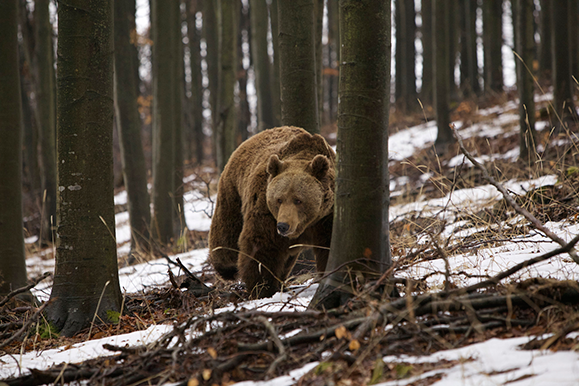
GRANTS AND NEW LEGISLATION
Among the projects receiving production support on 11 May 2018 are new films by Radu Jude and Bogdan Mirică. CNC also allotted funding for several minority coproductions, including new projects by Tomasz Wasilewski, Ivan Ostrochovski and Stefan Orlandic Stojanovski.
For the first time the CNC supported the production of four thematic feature films on the occasion of the centennial of the modern state. Another 20 short films, 15 documentaries and seven animated films received production funds.
On 19 October 2018, at its first session for 2018 the Romanian Film Centre allotted 4,283,656 EUR / 20 m RON for production and development funding. The biggest grant went to the minority coproduction Quo vadis, Aida! by Jasmila Žbanić, coproduced by Romania’s Digital Cube. Seven of the ten feature film projects receiving production grants are international coproductions. Among other minority coproductions that received funding are Son by Ines Tanović, coproduced by Romania’s Luna Film, and Tomorrow Will Be another Day by Pedro Pinho, coproduced by deFilm production.
Radu Jude received production funding for his new feature film The Sleepwalkers / Somnambulii, as well as for the documentary Arrival of a Train at the Station / Intrarea trenului în gară, both international coproductions produced by Micro Film.
The funding was announced for the production of feature films, long and short documentaries, short fiction films, animated films and thematic films, and also for the development of feature films, documentaries and animated films.
In 2018 the Romanian Film Centre prepared a new film law draft aimed at boosting support and visibility for the film industry. The draft will introduce the possibility for a film to be funded up to 80% of its budget due to a new category that would enable every Romanian film to be considered a difficult film. The new draft also provides a separate category for minority coproductions and a regional fund for co-distribution and a category of micro-budget films (films with budgets of up to 80,000 EUR), which could be financed by the CNC up to 100%. The draft is expected to move forward during the first semester of 2019.
Romania’s cash rebate scheme approved in June 2018 was launched by the National Commission for Prognosis on 8 October 2018. The state aid scheme offers a 35% cash rebate on qualified expenditure for international productions shooting in Romania. Additionally, productions explicitly promoting Romania, with a minimum local spend of 20% of the total budget of the production, can also apply for a rebate of 10%.
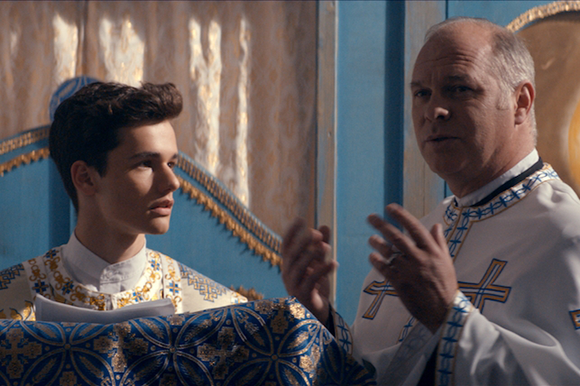 There is a total cap of 50 m EUR per year to fund the scheme. The minimum required amount of qualified expenses is 100,000 EUR. The scheme is open to feature films, medium and short fiction films, TV series, direct-to-video, internet and any other support films, documentaries and animated films. The rebate cannot exceed 10 m EUR per project (or per season, for a TV series).
There is a total cap of 50 m EUR per year to fund the scheme. The minimum required amount of qualified expenses is 100,000 EUR. The scheme is open to feature films, medium and short fiction films, TV series, direct-to-video, internet and any other support films, documentaries and animated films. The rebate cannot exceed 10 m EUR per project (or per season, for a TV series).
The scheme works on a first come first served basis and will require international productions to have production services or a coproduction contract with a Romanian production company.
The scheme is set to run until the end of 2020. The rebate scheme's budget was 50 m EUR until the end of 2018, despite the fact that the scheme covered the last three months of the year.
A total of 41 projects applied for rebates until the end of 2018, of which seven were approved, two were rejected and the rest were still under analysis at the beginning of January 2019.
The approved projects include international and Romanian projects such as David Berman’s War by Philip Noyce and a Florence Nightingale biopic presumably starring Keira Knightley. According to the Romanian media, Scottish actor Gerard Butler and American actor Liev Schreiber are in talks for David Berman’s War aka The Devil’s Brigade, which together with Florence are serviced in Romania by Frame Film.
Another international project approved for the rebate is Dragonheart 5, serviced by Castel Film Studios. The film is a sequel to Universal’s Dragonheart 4, which was also shot in Romania.
After the death of Lucian Pintilie, the newly established Fundația9 launched the Lucian Pintilie Film Fund aiming at honouring the memory of the great Romanian director as well as encouraging art house cinema made by new directors. The first filmmakers to benefit from the Fund were Cristi Iftime, Anghel Damian and Bogdan Mureșanu, who received 20,000 EUR each for their upcoming short projects. Fundația9 is an initiative supported by BRD Groupe Société Générale and one of the members of its Directorial Council is Corina Șuteu, Minister of Culture from May 2016 to January 2017.
In November 2018 mathematician Valer-Daniel Breaz was named the new Minister of Culture in Romania, as the Social Democratic Party (PSD) changed several ministers from the Government. Valer-Daniel Breaz replaced George Ivașcu, who had been named minister of 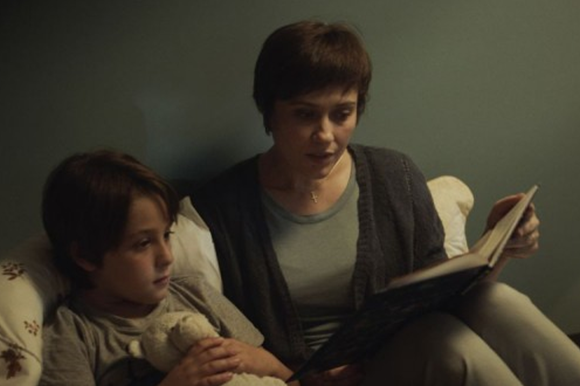 Culture in January 2018.
Culture in January 2018.
TV
Romanian public television runs several channels: TVR 1, TVR 2, TVR 3, TVR HD, TVR News, TVR and TVR Moldova, and five territorial studios.
The most popular private channels in Romania are: Pro TV (member of Media Pro trust, run by CME, Central European Media Enterprises), Antena 1 and Antena 3 (both members of Antena Group), B1 TV (owned by businessman, film producer and director Bobby Păunescu), Realitatea TV and Kanal D (run by the Turkish trust Dogan).
Doina Gradea was elected by the Romanian Parliament as general manager of the Romanian public broadcaster (SRTV) on 28 March 2018. She was appointed acting general manager in September 2017 after the rejection of the activity report on 2016 and thus the dissolution of the Council of Administration led by the former general manager Irina Radu.
Anii de sâmbătă seara, a TV series created by the popular director Nae Caranfil and directed by Dragoș Buliga, premiered on Pro TV on 29 December 2018. The flagship TV series of Pro TV, Las Fierbinți, entered its 13th season in 2018.
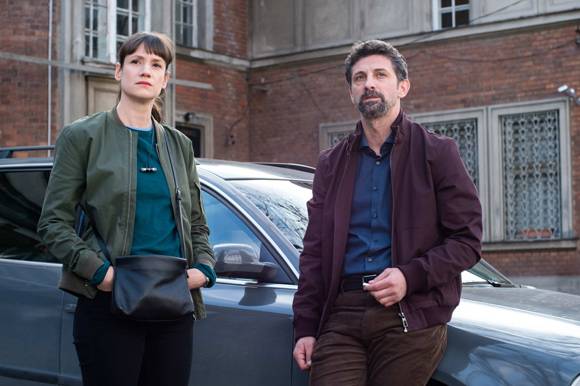 In 2018 HBO Europe and Germany’s TNT Series shot in Timișoara, Bucharest and Frankfurt the six-episode series Hackerville, directed by Igor Cobileanski and Anca Miruna Lăzărescu. The series was created by Ralph Martin and Joerg Winger for UFA Fiction, and it was produced by Cristian Mungiu and Tudor Reu through Mobra Films. The series premiered on HBO Romania in the autumn of 2018.
In 2018 HBO Europe and Germany’s TNT Series shot in Timișoara, Bucharest and Frankfurt the six-episode series Hackerville, directed by Igor Cobileanski and Anca Miruna Lăzărescu. The series was created by Ralph Martin and Joerg Winger for UFA Fiction, and it was produced by Cristian Mungiu and Tudor Reu through Mobra Films. The series premiered on HBO Romania in the autumn of 2018.
The third season of the successful TV series Shadows / Umbre was also shot in Romania in 2018. The six-episode HBO series was written and directed by Bogdan Mirică. The Romanian servicing company is Multi Media Est. Shadows is based on Small Time Gangster, a format created by Boilermaker Burberry, DRG Formats licensed.
Comrade Detective, a coproduction between Amazon Studios and A24, which was shot in Romania at Castel Film Studios starring Romanian actors Florin Piersic Jr. and Corneliu Ulici (dubbed by Channing Tatum and Joseph Gordon-Levitt), premiered on HBO and on HBO GO on 7 January 2018.
CONTACTS:
ROMANIAN FILM CENTRE
4-6, Dem. I. Dobrescu street, sector 1, Bucharest
Phone: +40 213 104 301
Fax: + 40 213 104 300
www.cnc.gov.ro
This email address is being protected from spambots. You need JavaScript enabled to view it.
THE MINISTRY OF CULTURE AND NATIONAL IDENTITY
22, Bulevardul Unirii, sector 3, Bucharest
Press office: +40 212 243 947
www.cultura.ro
This email address is being protected from spambots. You need JavaScript enabled to view it.
FILMMAKERS’S UNION (UCIN)
28-30 Mendeleev, sector 1, Bucharest
Phone: +40 213 168 0 83, +40 213 168 0 84
Fax: + 40 213 111 246
www.ucin.ro
This email address is being protected from spambots. You need JavaScript enabled to view it.
ROMANIAN FILM PROMOTION
52 Popa Soare street, sector 2, Bucharest
Phone: + 40 213 266 480
Fax: + 40 213 260 268
www.romfilmpromotion.ro
This email address is being protected from spambots. You need JavaScript enabled to view it.
ROMANIAN CULTURAL INSTITUTE
38 Aleea Alexandru
Sector 1, 011824
Bucharest, Romania
Phone: (+4) 031 71 00 627, (+4) 031 71 00 606
Fax: (+4) 031 71 00 607
www.icr.ro
This email address is being protected from spambots. You need JavaScript enabled to view it.
MEDIADESK ROMANIA
57 Barbu Delavrancea street, et. 1, sector 1, Bucharest
Phone / Fax: +40 213 166 060, +40 213 166 061
www.media-romania.eu
This email address is being protected from spambots. You need JavaScript enabled to view it.
Report by Iulia Blaga (2019)
Sources: the Romanian Film Centre - CNC, cinemagia.ro
MARKET ANALYSIS 2017
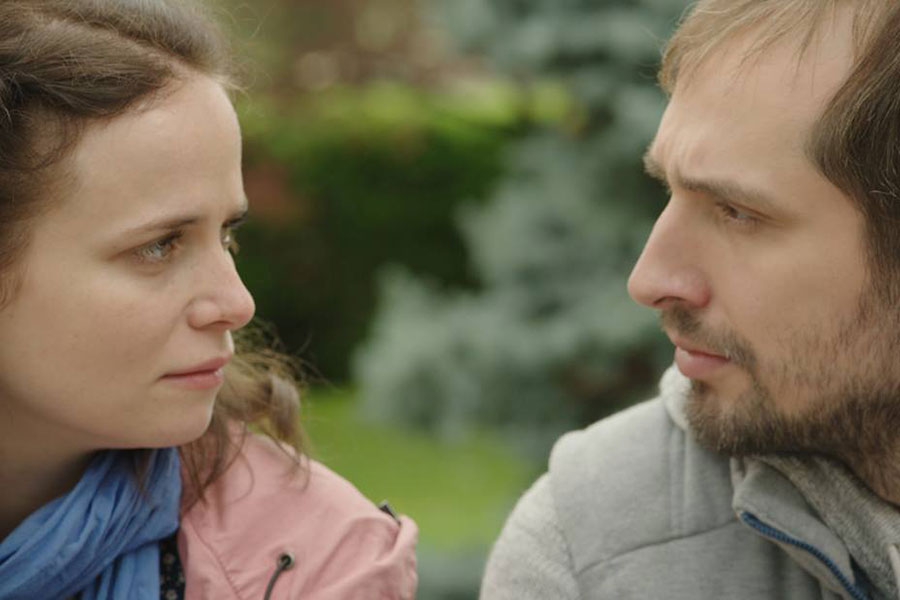 In May 2017 the Chamber of Deputies rejected the Film Law which was approved by the Romanian government as an emergency ordinance on 29 November 2016 and was aiming at bringing the Romanian film law in line with European legislation.
In May 2017 the Chamber of Deputies rejected the Film Law which was approved by the Romanian government as an emergency ordinance on 29 November 2016 and was aiming at bringing the Romanian film law in line with European legislation.
The Romanian Film Centre (CNC) launched only one grant contest in 2017, although the law requires two sessions per year.
The country saw a dramatic decrease in domestic admissions (from 484,739 in 2016 to an estimated 250,000 in 2017), but the number of domestic debut features increased.
Total admissions increased by 11.25 percent and total box office increased by 14 percent from 2016, according to the estimations provided by the CNC.
The most important accolades for the Romanian cinema in 2017 were the Silver Bear for Outstanding Artistic Contribution for editing received by Călin Peter Netzer’s Ana, mon amour, and Best Actor award given to Bogdan Dumitrache for Pororoca by Constantin Popescu at the 2017 San Sebastian Film Festival.
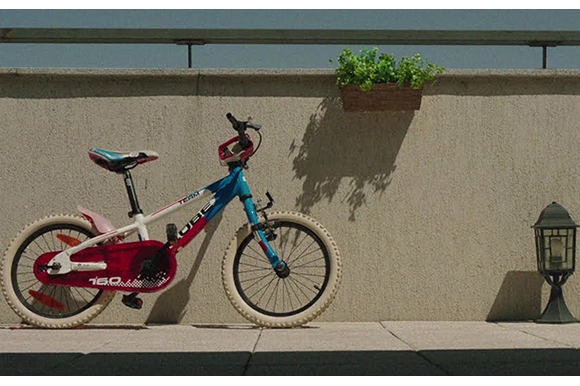 PRODUCTION
PRODUCTION
Most of the films produced in 2017 were supported by the Romanian Film Centre. Important filmmakers were in production with new projects in 2017. Radu Jude shot his new feature filmIs This What You Were Born For? with his regular producer Ada Solomon from Hi Film Productions in summer-fall 2017. The film is a Romanian/Czech/French/Bulgarian coproduction between by Hi Film Productions, endorfilm, Les Films d’Ici and Klas Film. Beta Cinema is handling the sales and Micro Film will release it in Romania in 2018.
Radu Muntean shot his new feature film Alice T. in August 2017. This psychological drama is a Romanian/Swedish/French coproduction between Multi Media Est, Chimney and Les Films de L'Apres Midi.
Stere Gulea shot a sequel to Moromeții, 30 years after his first adaptation of the novel by Marin Preda in one of the most acclaimed Romanian movies of all times. Moromeții 2 is produced by Tudor Giurgiu through Libra Film Productions and will be domestically released by Transilvania Film on 9 November 2018.
In 2017 Tudor Giurgiu shot his fourth film as a director and his first film as a director abroad. Based on a Romanian bestseller, Above Man, the Woman Soars / Apropierea / Sin Aliento is a Romanian/Spanish/Czech coproduction between Libra Film, Clint Movies and Evolution Films.
 In 2017 Anca Damian started the production of the long animated filmThe Extraordinary Voyage of Marona / Extraordinara calatorie a Maronei, a coproduction between Romania’s Aparte Film, France’s Sacrebleu and Belgium’s Mind Meets.
In 2017 Anca Damian started the production of the long animated filmThe Extraordinary Voyage of Marona / Extraordinara calatorie a Maronei, a coproduction between Romania’s Aparte Film, France’s Sacrebleu and Belgium’s Mind Meets.
In spring 2017 Paul Negoescu shot his first international coproduction, Never Let It Go, produced by him through Papillon Film & N-Graphix in coproduction with Poli Angelova through Bulgaria's Screening Emotions. Negoescu’s previous film Two Lottery Tickets / Două lozuri, an independent comedy produced by Actoriedefilm.ro on a budget of approximately 30,000 EUR, became the domestic film with the best box office (540,000 EUR / 2,403,355 RON) in 2016.
Several expected debut features were shot in 2017. Ioana Uricaru’s Lemonade was shot in Montreal and Bucharest in June-August 2017. The film is a Romanian/Canadian/German/Swedish coproduction produced by Cristian Mungiu through Romania’s Mobra films in coproduction with Canada’s Peripheria, Germany’s 42 Film and Sweden’s Filmgate Films. It is the first Romanian film made with Canadian support since 1989.
Writers/directors Gabi Virginia Șarga and Cătălin Rotaru, who were selected with their very first short film 4:15 p.m. The End of the World for Cannes short film competition in 2016, filmed their debut feature in autumn of 2017. Thou Shalt Not Kill / Să nu ucizi aka Primum Non Nocere is a 100% Romanian production produced by Adina Sădeanu through Axis Media Production in coproduction with Gabi Virginia Șarga and Cătălin Rotaru through Green Cat Film.
Hadrian Marcu shot his debut feature Shadow and Dream (working title) in 2017. The film is a Romanian/Polish coproduction produced by Anamaria Antoci and Adrian Silișteanu through Romania's 4 Proof Film in coproduction with Klaudia Smieja and Beata Rzezniczek through Poland's Madants. The film was shot in the spring of 2017.
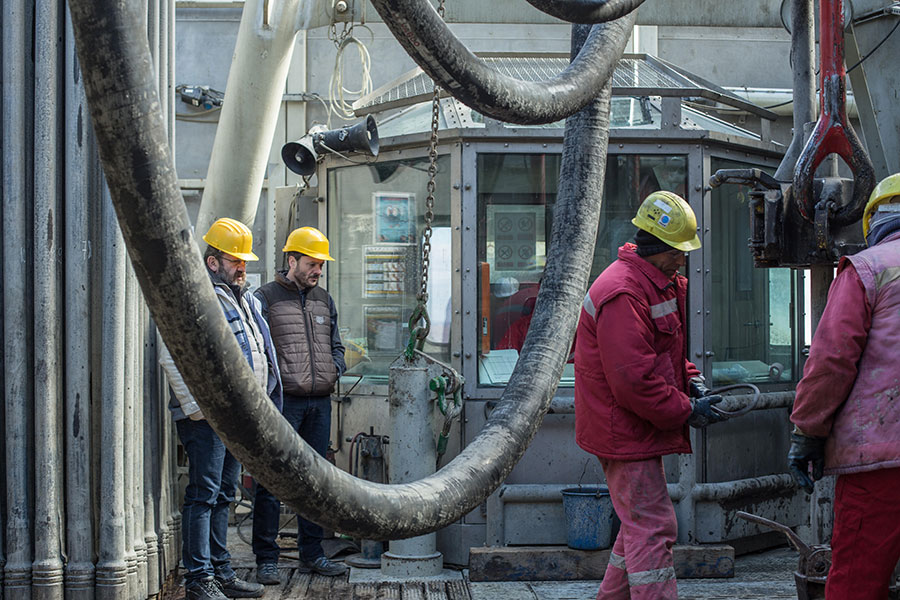 Romania continued to host international coproductions despite the fact that a tax incentive scheme is long awaited. In 2017 Cristian Mungiu got involved in a big international project with his company Mobra Films. Palm d'or winner Jacques Audiard shot The Sisters Brothers, starring Joaquin Phoenix, John C. Reilly and Jake Gyllenhaal, in Romania in August-September 2017. This western set in Oregon in 1851 is a French/American/Romanian coproduction between Why Not Productions, Annapurna Pictures and Mobra Films.
Romania continued to host international coproductions despite the fact that a tax incentive scheme is long awaited. In 2017 Cristian Mungiu got involved in a big international project with his company Mobra Films. Palm d'or winner Jacques Audiard shot The Sisters Brothers, starring Joaquin Phoenix, John C. Reilly and Jake Gyllenhaal, in Romania in August-September 2017. This western set in Oregon in 1851 is a French/American/Romanian coproduction between Why Not Productions, Annapurna Pictures and Mobra Films.
The Nun, directed by Corin Hardy, was the first New Line Cinema/Warner Bros. production to be shot at Castel Film Studios in 2017. The spin-off to the 2016 The Conjuring 2 was shot entirely in Romania from May to June 2017 as a medium budget production by New Line Cinema, Atomic Monster and The Safran Company.
Castel Film Studios also serviced for the Hallmark film Family Royal directed by and starring James Brolin in 2017.
The romantic drama See You Soon starring Liam McIntyre, Jenia Tanaeva and Harvey Keitel was shot in Romania in July 2017. Romania's Alien Film serviced it not only in Romania, but also in Greece and Russia.
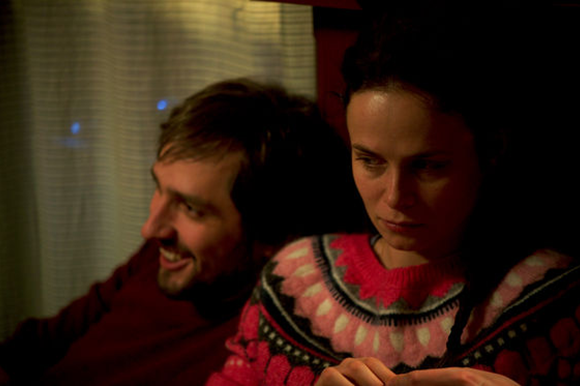 DISTRIBUTION
DISTRIBUTION
The day-and-date release is in its early stages in Romania. Romanian distributors usually release their international films on VOD four to six months after their theatrical release. Antoine Bagnaninchi, who runs Independenta Film and distributes art house titles, says that VOD has become routine for most of his films.
Independenta Film joined the VOD platform Seenow in mid-April 2015. Seenow is operated by Direct One and is the first Romanian provider of live TV and VOD available on all screens.
However, Matei Truța, Distribution Manager with the Romanian company Transilvania Film (distributing art house films) told FNE in its Distributor of the Month section in April 2017, that “the specifics of the Romanian market are such that both VOD and Home Video are rather underdeveloped” .
In May 2016, Matei Truța also told FNE: “Presently VOD constitutes less than 5% of our annual revenues. This in the context of the Romanian VOD market, in general, being underdeveloped and struggling with piracy.”
Questioned as to where he saw VOD in Romania five years from now, Truța answered: “VOD will definitely have a strong voice in how the future of the Romanian film market is shaped, but I don’t know if the next five years will be enough to see it done. Ultimately, it will come down to correctly addressing a series of problems before the VOD market can grow: piracy and adapting the distributors' offer to the consumers' need.”
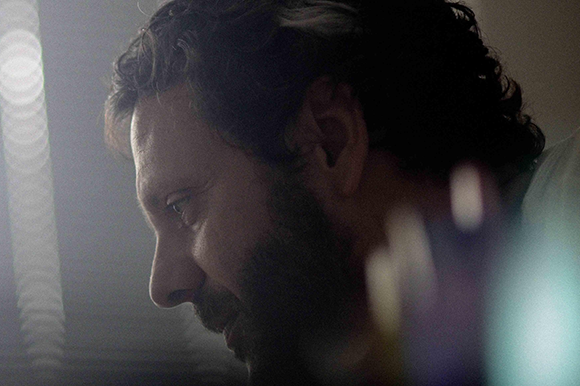 CINEPUB, an online and free of charge platform for Romanian films, was launched on YouTube by GAV on 26 February 2015. Cinepub in partnership with Google Romania shows domestic feature films, short films and documentaries. Mubi was also launched in Romania in 2015 and has several Romanian films in its portfolio. Netflix was launched in Romania in 2016.
CINEPUB, an online and free of charge platform for Romanian films, was launched on YouTube by GAV on 26 February 2015. Cinepub in partnership with Google Romania shows domestic feature films, short films and documentaries. Mubi was also launched in Romania in 2015 and has several Romanian films in its portfolio. Netflix was launched in Romania in 2016.
A new Romanian film distributor Bad Unicorn made its debut on the Romanian market by releasing Ildikó Enyedi's On Body and Soul on 30 June 2017. The film had 15,781 admissions until the end of 2017.
In 2017 more domestic films were released in Romania by major distributors such as Vertical Entertainment and Ro Image 2000.
Festival exposure continued to help Romanian films to be sold abroad. Călin Peter Netzer’s psychological drama Ana, mon amour was sold by Beta Cinema to 12 territories. This Romanian/German/French coproduction between Parada Film, augenschein Filmproduktion and Sophie Dulac Productions was sold to: Benelux, Poland, Portugal, Spain, Greece, Turkey, ex-Yugoslavia, China, Taiwan, Germany, France and Mexico. The film was released in Romania by Vertical Entertainment on 3 March 2017 and had 25,146 admissions until the end of the year.
Wide Management sold the psychological drama Pororoca by Constantin Popescu to China, Croatia, Slovenia, Bosnia-Herzegovina, Serbia, Montenegro, Macedonia, Kosovo, Albania, Argentina, Chile, Paraguay, Uruguay, Spain and France, following its premiere in the main competition of the San Sebastian FF. The film was produced by Romania’s Scharf Film & Advertising in coproduction with France’s Irreverence Films.
Soldiers. A Story from Ferentari, the debut feature of Serbian director Ivana Mladenovic, was acquired by the German sales agent Beta Cinema before its world premiere at the San Sebastian FF. The film was also selected for Toronto Festival’s Discovery section and is set for release in Romania by Micro Film on 2 February 2018. The film is a coproduction between Romania’s HiFilm Productions, Serbia’s Film House Bas Celik and Belgium’s FRAKAS Productions.
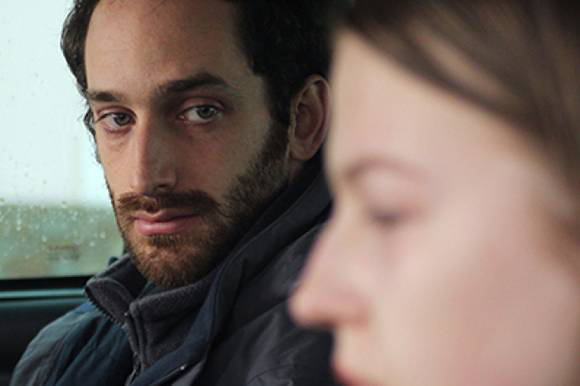 Andrei Crețulescu's debut feature Charleston aka Charlton Heston was picked up by Paris-based sales agent Versatile. This Romanian/French coproduction between Icon Production and Les films du tambour and in association with Romania’s Kinosseur, was selected for the International Competition of Locarno 2017 and is set for domestic release in 2018.
Andrei Crețulescu's debut feature Charleston aka Charlton Heston was picked up by Paris-based sales agent Versatile. This Romanian/French coproduction between Icon Production and Les films du tambour and in association with Romania’s Kinosseur, was selected for the International Competition of Locarno 2017 and is set for domestic release in 2018.
Adrian Sitaru’s Fixer / Fixeur, which was chosen as Romania’s official candidate for the Academy of Motion Pictures Arts and Sciences nomination in the Best Foreign Language Film category in 2018, has been sold by MPM Film to Italy, Norway and Denmark. The film was produced by Romania’s 4Proof Film in coproduction with France’s Petit Film, and was already released in Romania and France in 2017.
EXHIBITION AND BOX OFFICE
Since 2008, RomâniaFilm, the former cinema network inherited from the communist era, has re-assigned more than 100 cinemas to local councils, but less than 10% are still screening films. Romania is currently the country with the fewest cinema theaters per population in Europe. Seventy eight percent of Romanian towns don’t have any cinemas in use.
The first state cinema opened in Romania after 1990, Cinema Ateneu, was opened in Iași in October 2017. Local authorities invested approximately 100,000 EUR in its renovation and 3D equipment.
 The plan to build an art house cinema network in Romania was the core of a meeting of local exhibitors, distributors and filmmakers, and also representatives of Europa Cinemas and the European Commission. The meeting was held during the 20th Europa Cinemas Network Conference in Bucharest (24-26 November 2017). The idea of a network including local art house cinemas was part of the Film Law elaborated by the Romanian Ministry of Culture under the minister Corina Șuteu and rejected by the Parliament in May 2017. Nico Simon, the President of Europa Cinemas, and Lucia Recalde, head of the MEDIA unit, said that their institutions might start helping the network when it is in place.
The plan to build an art house cinema network in Romania was the core of a meeting of local exhibitors, distributors and filmmakers, and also representatives of Europa Cinemas and the European Commission. The meeting was held during the 20th Europa Cinemas Network Conference in Bucharest (24-26 November 2017). The idea of a network including local art house cinemas was part of the Film Law elaborated by the Romanian Ministry of Culture under the minister Corina Șuteu and rejected by the Parliament in May 2017. Nico Simon, the President of Europa Cinemas, and Lucia Recalde, head of the MEDIA unit, said that their institutions might start helping the network when it is in place.
Cinema Elvire Popesco from Bucharest was among the winners of the Europa Cinemas Awards 2017 announced at the 20th Europa Cinemas Network Conference in Bucharest on 24 November 2017. Boglarka Nagy, the programmer of Cinema Elvire Popesco, Bucharest, Romania received the Best Programming Award.
Cinema City opened its 25th multiplex in Romania in Galați at the end of November 2017. The biggest cinema operator in the country, which celebrated its 10th year in Romania in 2017, opened its fourth Romanian 4DX cinema in Brăila Mall in August 2017. New multiplexes helped increase admissions, which were as low as almost 3 m in 2007, to more than 13 m in 2016. Now Cinema City dominates more than half of the market with 25 multiplexes in 18 towns, totalling 231 screens and over 41,400 seats.
The first 12 D cinema in Romania opened in the Museum of National Science in Galați on 19 July 2017. The nine-seat hall was equipped with the support of a private investor.
Ninety two cinemas were operating in Romania in 2016. Of the 393 screens, 371 were digitalised, according to the Romanian Film Centre. No statistics or estimations for 2017 were available until the wrap of this report.
A total of 19 domestic films (including one minority coproduction) were released in 2017 and had 250,000 admissions (according to the CNC’s estimations), while 20 domestic films sold 484,739 tickets in 2016.
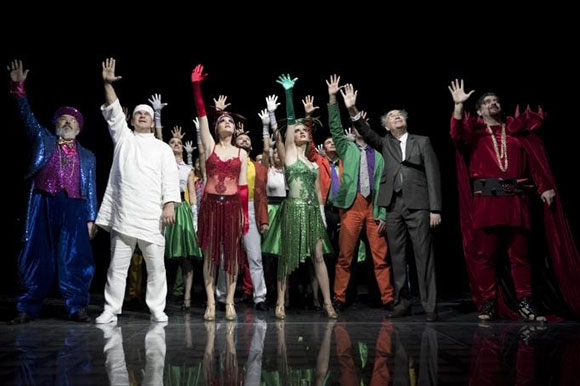 The 2017 crop of films has not produced a popular youth film such as #Selfie 69 by Cristina Iacob (with 150,384 admissions in 2016), a comedy like Two Lottery Tickets by Paul Negoescu (133,788 admissions in 2016) or a festival darling such as Cristian Mungiu’s Graduation (55,533 admissions in 2016).
The 2017 crop of films has not produced a popular youth film such as #Selfie 69 by Cristina Iacob (with 150,384 admissions in 2016), a comedy like Two Lottery Tickets by Paul Negoescu (133,788 admissions in 2016) or a festival darling such as Cristian Mungiu’s Graduation (55,533 admissions in 2016).
The most successful domestic films in 2017 were the nostalgic melodrama Octav, the debut feature by Serge Ioan Celebidachi with 57,068 admissions and 185,138 EUR / 858,237 RON gross (distributor Oblique Media), Ghinionistul by Iura Luncasu with 50,727 admissions and 208,077 EUR / 964,570 RON gross (distributor Vertical Entertainment), 6.9 on the Richter Scale / 6,9 pe scara Richter by Nae Caranfil with 32,996 admissions and 100,157 EUR / 464,296 RON gross (distributor Voodoo Films), A Step Behind the Seraphim / Un pas in urma serafimilor, the debut feature by Daniel Sandu, with 31,550 admissions and 81,587 EUR / 378,209 RON gross (distributor Micro Film) and Hawaii aka Uruguay by Jesus Del Cerro with 25,946 admissions and 108,549 EUR / 503,198 RON gross (distributor Ro Image 2000).
The 19 films released in 2017 include six debut features and three long documentaries, while another four debut features are ready to be released in 2018. Only three debut features and two documentaries were theatrically released in 2016.
The admissions chart 2017 is topped by Fast & Furious with 683,826 admissions and 13,315,379 RON gross. The film is followed in the box office by Pirates of the Caribbean: Dead Men Tell No Tales, Thor: Ragnarok, Fifty Shades Darker and Star Wars: The Last Jedi. An admissions chart cannot be drawn up because distributor Forum Film Romania stopped reporting admissions to Cinemagia, which is the only private initiative in film statistics in Romania. As a result, total admissions cannot be estimated until the Romanian Film Centre releases its 2017 statistics in the spring of 2018.
Total admissions increased by 11.25 percent from 13,033,687 in 2016 to an estimated 14,500,000 in 2017, according to the Romanian Film Centre (CNC). Box office increased by 14 percent from 53,684,981EUR / 241,582,416 RON in 2016 to an estimated 61,222,222 EUR / 275,500,000 RON. CNC also estimates that admissions for domestic films were 250,000 in 2017.
 GRANTS AND NEW LEGISLATION
GRANTS AND NEW LEGISLATION
There was one grant session launched by the Romanian Film Center (CNC) in 2017. In November 2017 the CNC announced it would give 10,750,000 EUR / 50 m RON for feature film production (5,267,500 EUR / 24.5 m RON), debut feature production (1,612,500 EUR / 7.5 m RON), documentary production (1,075,000 EUR / 5 m RON), animated film production (1,075,000 EUR / 5 m RON), short fiction film production (537,500 EUR / 2.5 m RON) and development (107,500 EUR / 0.5 m RON). The results will be announced in 2018.
In the same session, CNC launched for the first time production grants for short and long thematical films. The theme of this session was the celebration of 100 years since the Great Union of 1918, which led to the modern state. The amount for this section was 1,075,000 EUR / 5 m RON.
According to the law, there should be two grants sessions per year, but in 2017 things went slowly due to a new Minister of Culture, Lucian Romaşcanu, who was expected to issue a paper regarding the grant contest regulations, with the Parliament's approval of the Emergency Ordinance regarding the thematical film grants.
In January 2017 the Ministry of Culture changed its name to the Ministry of Culture and National Identity, as one of its main goals in 2017 was to prepare the centennial of the union of 1918.
 In May 2017 the Chamber of Deputies rejected the Film Law approved by the Romanian government as an emergency ordinance on 29 November 2016. The new law proposed by the Ministry of Culture, was aimed at bringing the Romanian film law in line with the European legislation and was approved by the Government in December 2016, shortly before the parliamentary elections won by the Social-Democratic Party.
In May 2017 the Chamber of Deputies rejected the Film Law approved by the Romanian government as an emergency ordinance on 29 November 2016. The new law proposed by the Ministry of Culture, was aimed at bringing the Romanian film law in line with the European legislation and was approved by the Government in December 2016, shortly before the parliamentary elections won by the Social-Democratic Party.
Lucian Romaşcanu was named the new Minister of Culture, announced by the Romanian Prime Minister Mihai Tudose on 28 June 2017, following Ionuţ Vulpescu, who had been re-appointed Minister of Culture in January 2017, after the Social Democratic Party (PSD) won the parliamentary elections in November 2016.
Romania doesn’t have a tax incentives scheme yet. The former Minister of Culture Corina Șuteu announced her intention to launch such a scheme in Cannes in 2016, but Șuteu’s intentions aiming at a multi-levelled reform in the film industry were blocked when the PSD won the elections in November 2016 and rejected the new Film Law in spring 2017. A petition pointing out to the need of having a tax incentives scheme in Romania has been signed by more than 3,500 professionals since 28 November 2017.
TV
The Government eliminated the radio-TV tax starting 1 January 2017 and started to allot similar funding to the Romanian public broadcaster and the public service.
In September 2017 Doina Gradea was confirmed by the Romanian Parliament as acting general manager of the Romanian public broadcaster (SRTV) after the rejection of the activity report on 2016 and thus the dissolution of the Council of Administration led by the former general manager Irina Radu.
 Irina Radu, who had been acting general manager since September 2015, said that 2016 was a though year, when the institution was confronted with approximately 150 m EUR in debt. Romanian public television runs several channels: TVR 1, TVR 2, TVR 3, TVR HD, TVR News, TVR i, TVR Moldova and five territorial studios.
Irina Radu, who had been acting general manager since September 2015, said that 2016 was a though year, when the institution was confronted with approximately 150 m EUR in debt. Romanian public television runs several channels: TVR 1, TVR 2, TVR 3, TVR HD, TVR News, TVR i, TVR Moldova and five territorial studios.
The most popular private channels in Romania are: Pro TV (member of Media Pro trust, which is run by CME, Central European Media Enterprises), Antena 1 and Antena 3 (both members of Antena Group), B1 TV (owned by businessman, film producer and director Bobby Păunescu), Realitatea TV and Kanal D (run by the Turkish trust Dogan).
Cinemaraton, the first channel to broadcast only domestic films in Romania, started airing on 30 March 2017. The channel is distributed free of charge to the subscribers of AKTA. AKTA is the brand under which the telecom company Digital Cable Systems SA provides TV channels, internet and telephony to more than 3,000 localities in 35 counties.
In 2017 Pro TV continued to produce and broadcast its popular sitcom Las Fierbinți. Launched in 2012, the series created by Mimi Brănescu and directed by Dragoș Buliga and Constantin Popescu, reached seasons 11 and 12. Both seasons were broadcast in 2017.
Also in 2017 Antena 1 started the production of the series The Forbidden Fruit / Fructul oprit, produced and directed by Ruxandra Ion. Shooting started in November 2017 and it is set to take place in Romania and also in Turkey, since the series is based on a Turkish novel.
The second season of the most popular series produced by HBO Europe in Romania, Shadows / Umbre written and directed by Bogdan Mirică, opened simultaneously on 12 November 2017 in all 19 European countries where HBO operates: Romania, Poland, Bulgaria, Hungary, Croatia, the Czech Republic, Montenegro, Macedonia, Serbia, Slovenia, Slovakia, Bosnia and Herzegovina, Moldova, Kosovo, Denmark, Sweden, Norway, Finland and Spain. Of the six episodes two are directed by Igor Cobileanski.
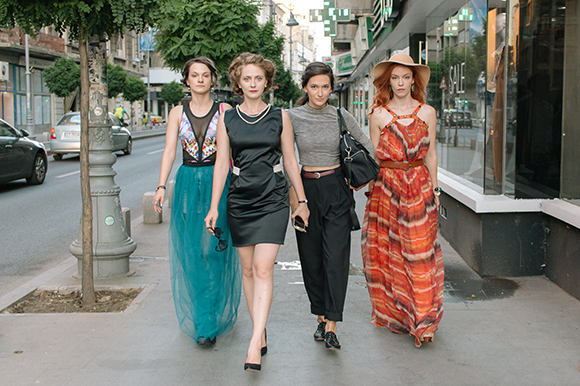 HBO Romania reconsidered its dubbing policy after more than 5,000 subscribers signed a petition asking the channel to stop dubbing films in August 2017. The reaction came after HBO Romania broadcast a dubbed version of Rogue One: A Star Wars Story. HBO Romania’s representatives told FNE that that the channel will respect the wishes of its subscribers and will make sure that from now on Rogue One: A Star Wars Story has its original audio and Romanian subtitles. HBO Romania might also stop dubbing other titles.
HBO Romania reconsidered its dubbing policy after more than 5,000 subscribers signed a petition asking the channel to stop dubbing films in August 2017. The reaction came after HBO Romania broadcast a dubbed version of Rogue One: A Star Wars Story. HBO Romania’s representatives told FNE that that the channel will respect the wishes of its subscribers and will make sure that from now on Rogue One: A Star Wars Story has its original audio and Romanian subtitles. HBO Romania might also stop dubbing other titles.
CASTiNG, one of the few Romanian online original series to date, started broadcasting on YouTube on 14 December 2017. Its first episode has had 22,000 views to date. CASTiNG’s premiere came shortly after the launch on YouTube of another domestic series, Lara directed by Ciprian Iacob and produced by Mixton Movie, which has had 2.1 m viewers for its first episode from September 2017 to date.
Unlike Lara, a children and youth series played by non-professional actors, CASTiNG is a professional enterprise made with a budget of 30,000 EUR and a crew of 40 people. The production company Diud is already planning the second season and more online shows. The eight episodes are directed by young directors Millo Simulov, Andrei Gheorghe, Florin Babei, Iliana Dumitrache, Roxana Andrei and Andrei Ion.
CONTACTS:
ROMANIAN FILM CENTRE
4-6, Dem. I. Dobrescu street, sector 1, Bucharest
Phone: +40 213 104 301
Fax: + 40 213 104 300
www.cnc.gov.ro
This email address is being protected from spambots. You need JavaScript enabled to view it.
THE MINISTRY OF CULTURE AND NATIONAL IDENTITY
22, Bulevardul Unirii, sector 3, Bucharest
Press office: +40 212 243 947
www.cultura.ro
This email address is being protected from spambots. You need JavaScript enabled to view it.
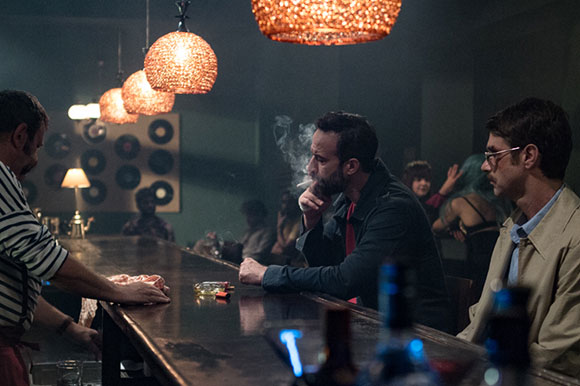 FILMMAKERS’S UNION (UCIN)
FILMMAKERS’S UNION (UCIN)
28-30 Mendeleev, sector 1, Bucharest
Phone: +40 213 168 0 83, +40 213 168 0 84
Fax: + 40 213 111 246
www.ucin.ro
This email address is being protected from spambots. You need JavaScript enabled to view it.
ROMANIAN FILM PROMOTION
52 Popa Soare street, sector 2, Bucharest
Phone: + 40 213 266 480
Fax: + 40 213 260 268
www.romfilmpromotion.ro
This email address is being protected from spambots. You need JavaScript enabled to view it.
ROMANIAN CULTURAL INSTITUTE
38 Aleea Alexandru
Sector 1, 011824
Bucharest, Romania
Phone: (+4) 031 71 00 627, (+4) 031 71 00 606
Fax: (+4) 031 71 00 607
www.icr.ro
This email address is being protected from spambots. You need JavaScript enabled to view it.
MEDIADESK ROMANIA
57 Barbu Delavrancea street, et. 1, sector 1, Bucharest
Phone / Fax: +40 213 166 060, +40 213 166 061
www.media-romania.eu
This email address is being protected from spambots. You need JavaScript enabled to view it.
Report by Iulia Blaga
Sources: the Romanian Film Center - CNC, cinemagia.ro

